News
December 2025
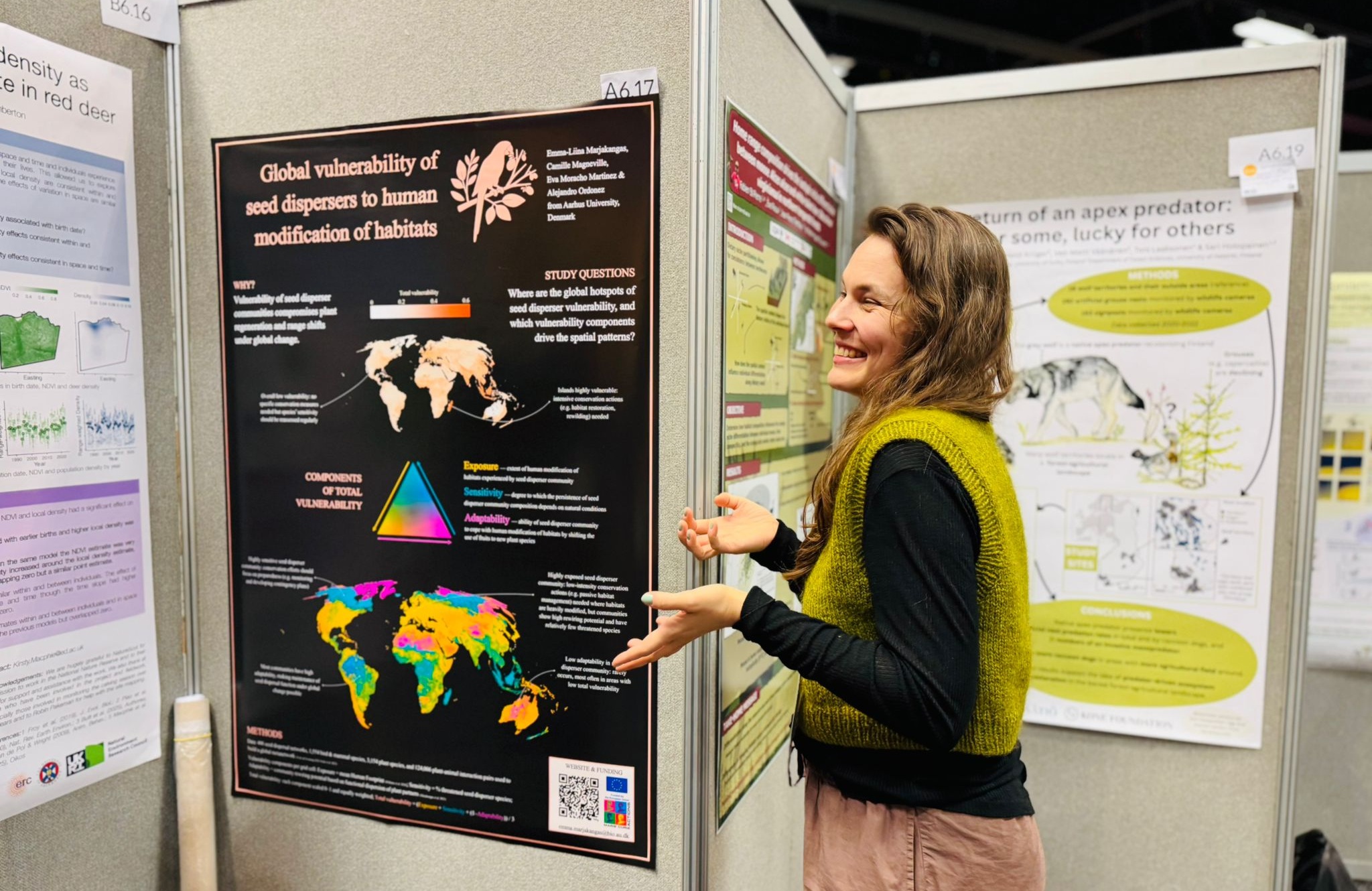
I attended the BES Annual Meeting for the first time this year, held in the beautiful city of Edinburgh. It was a great experience to finally be part of such a large and inspiring ecological conference. I presented a poster (which I love designing), together with MANY others: the poster sessions were huge! An extra nice touch was that all the food at the conference was vegan, which made me very happy. The keynote talks stood out in particular: excellent examples of compelling scientific storytelling that left me feeling very inspired. Overall, a memorable first BES conference and hopefully the first of many. I hope I’ll get to go next year as well!
November 2025
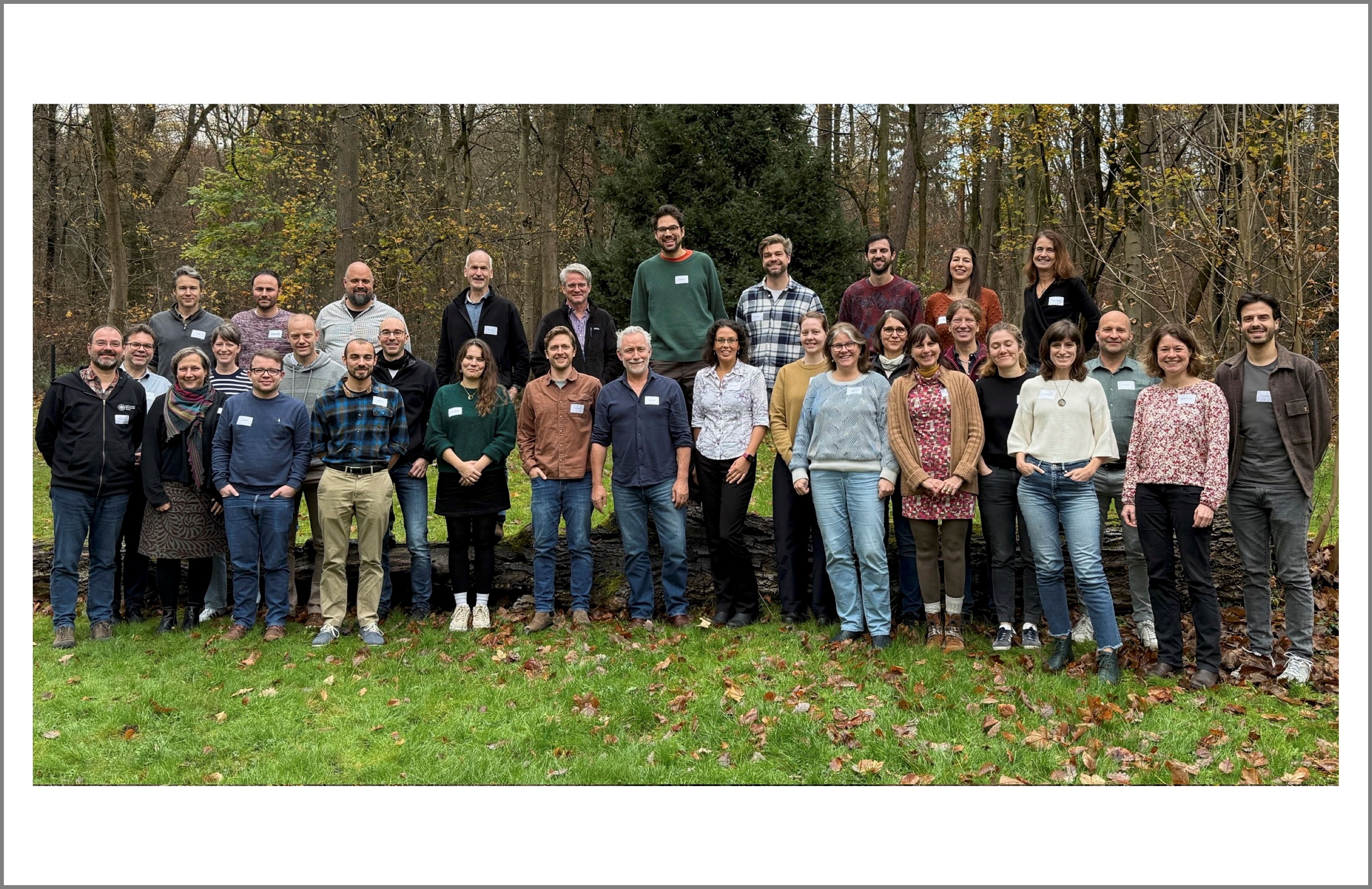
I spent an inspiring week at a trait-based workshop just outside Frankfurt, exploring how we can connect individual plant and animal traits to ecosystem-level processes. The setting was a cute hotel inside a small forest, which served as a nice place to go for walks between sessions. Discussions focused on how the rapidly growing availability of trait data can advance our understanding of ecosystem functioning. I found it especially exciting how different perspectives are coming together — from data collection to modelling processes across scales. My own work sits right at the intersection of these ideas: interactions between species help shape ecosystem functions, and functional traits influence which interactions actually occur. I learned a lot about new approaches to quantifying ecosystem functioning and met many people whose work I’ve been following for a long time — it was great finally putting faces to names. Looking forward to building on many of the ideas we talked about!
October 2025
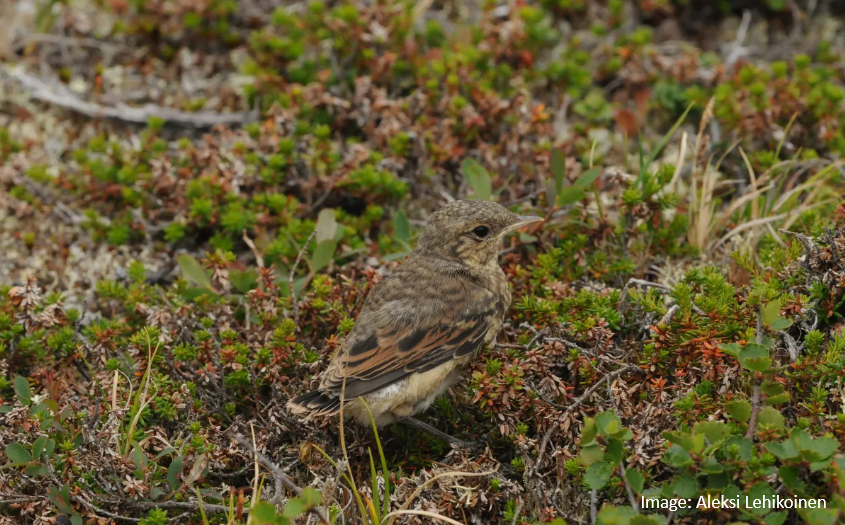
Exciting new paper just out: a new study led by PhD researcher Joséphine Couet shows that solar radiation influences where mountain birds live but not how they shift uphill. Analyzing data from 177 species across four major European mountain regions (2001–2021), the team found that birds are more abundant on slopes with high solar radiation, which offer warmer microclimates and more forest cover. However, all birds moved uphill at similar rates, about 8.4 meters in 20 years, regardless of solar radiation. The study is Joséphine’s second PhD paper, part of her thesis to be defended in January 2026. Press release is also out and can be found here!
September 2025
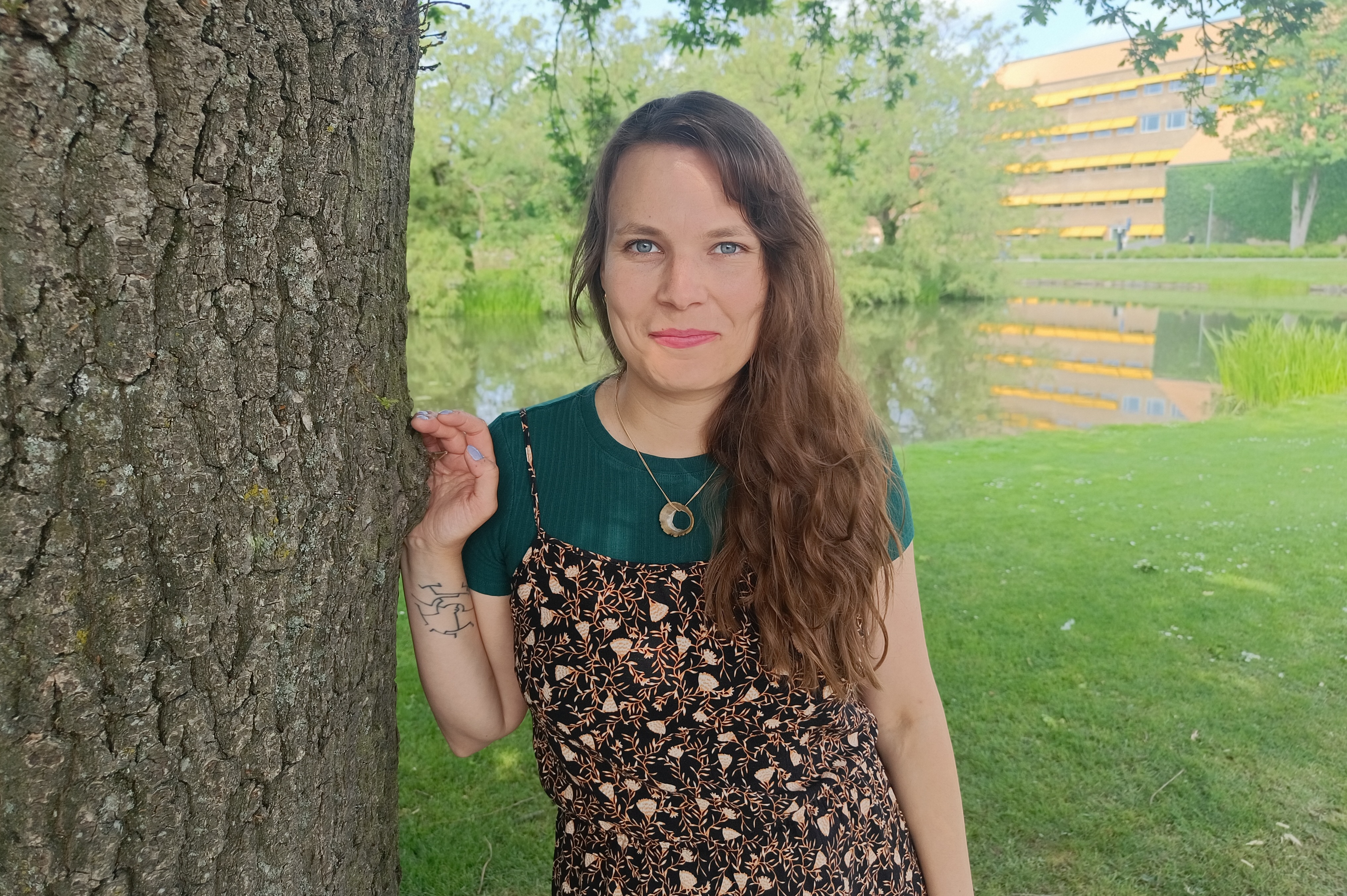
Big month with several funding application deadlines, submissions of manuscripts and one finished PhD thesis of a student I co-supervise! This busy month also includes presenting my MSCA research at MSCA Presidency conference 2025 to show how mobility postdoc funding can lead to cool research. For this purpose, I made a short video (edited by DTU Medialab) that is available here. It was fun to make the video and really think how conceptual ideas and complex models can be summarized into a video that anyone could understand.
August 2025
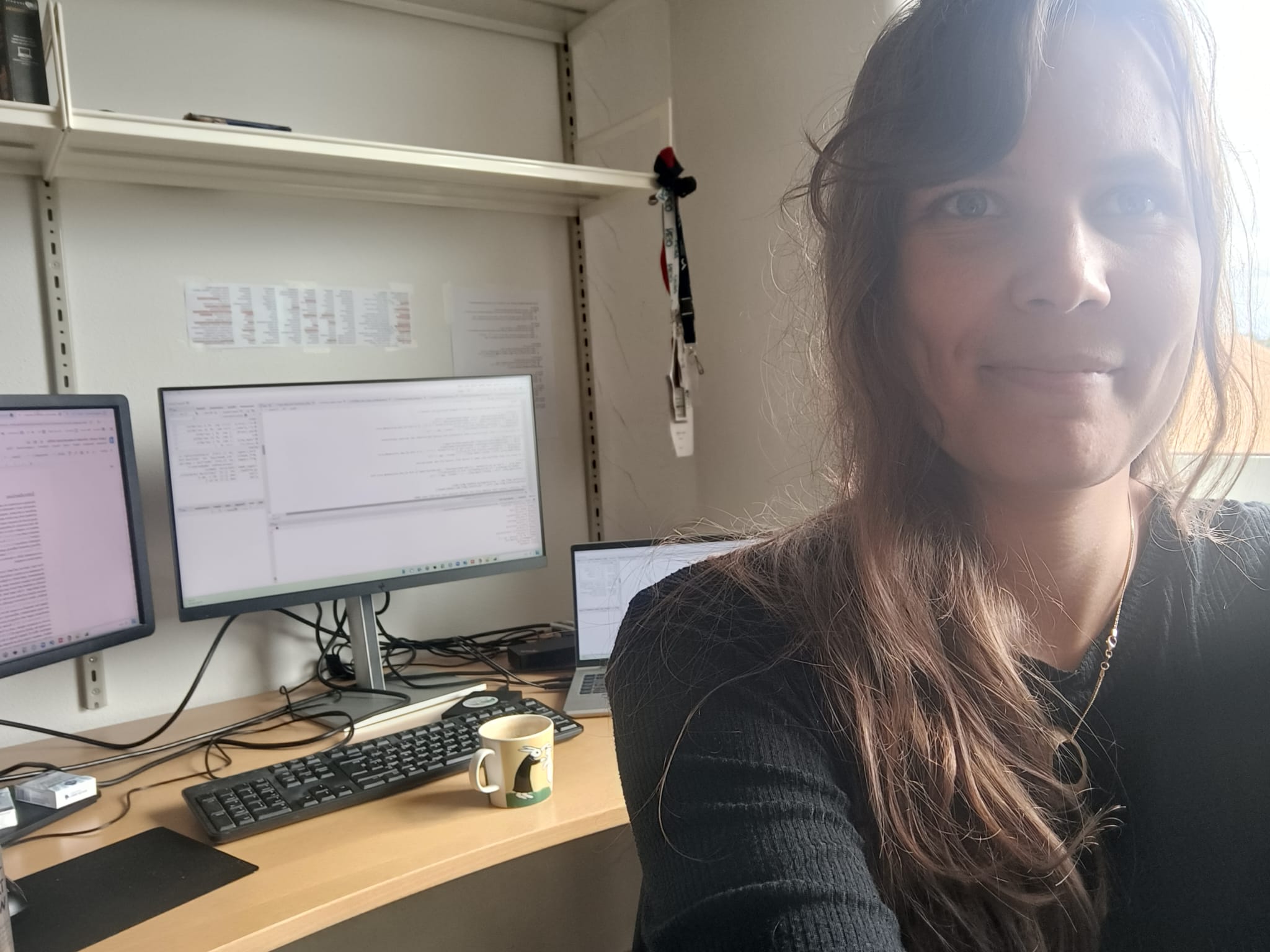
Taking vacation in July means working twice as hard in August, especially when many funding calls have their deadlines in the autumn. Application writing has taken most of my time, I look forward to getting back to my actual science already!
June 2025
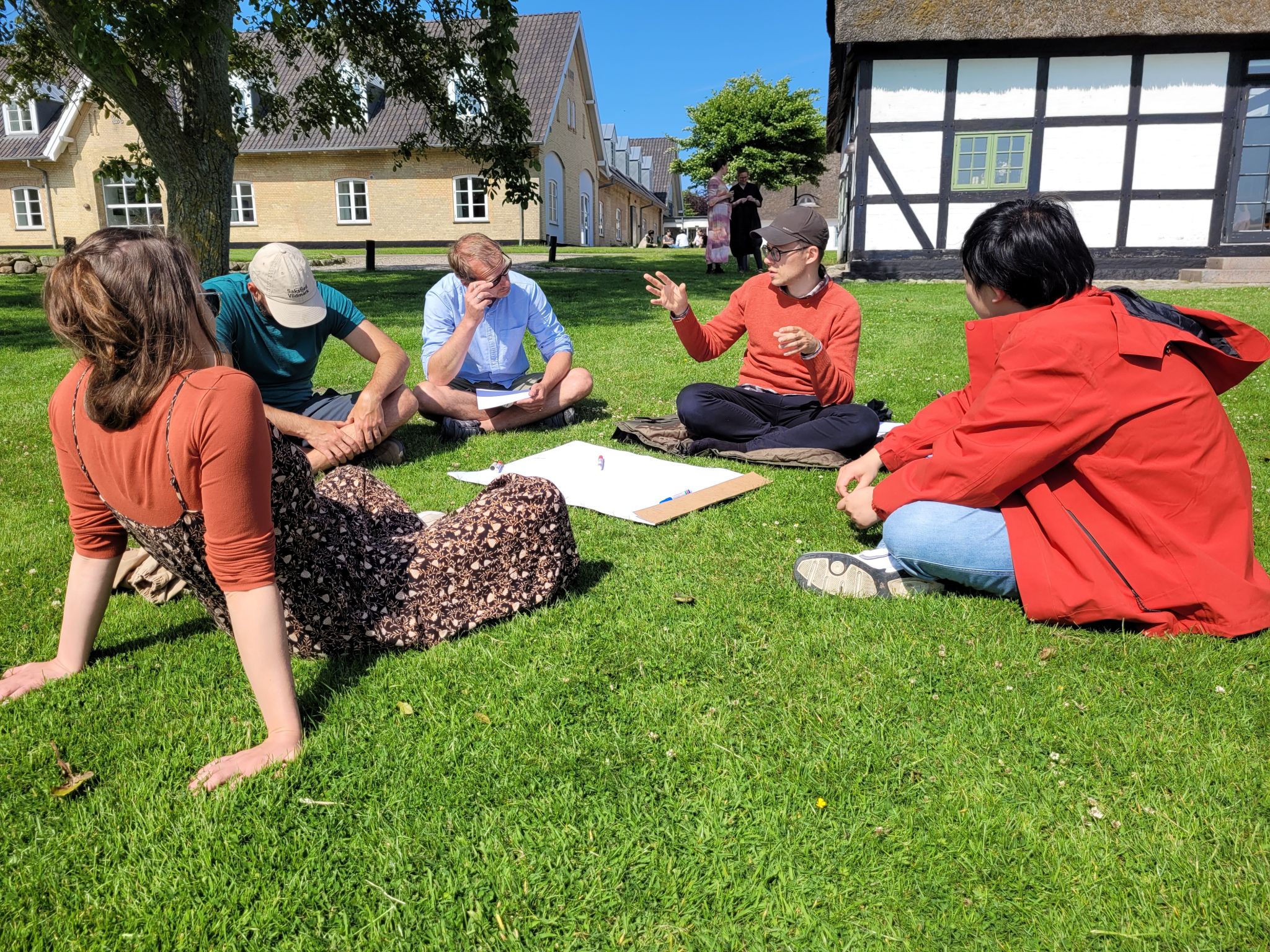
ECONOVO Center’s yearly retreat at Sandbjerg Gods for a couple of days included very important and interesting discussions on fair recognition and power dynamics in academia that could influence how contributions are recognized. We talked about experiences at different career stages and different institutions and brainstormed how to make collaborations at ECONOVO more inclusive. The cherry on top was an evening sauna!
May 2025
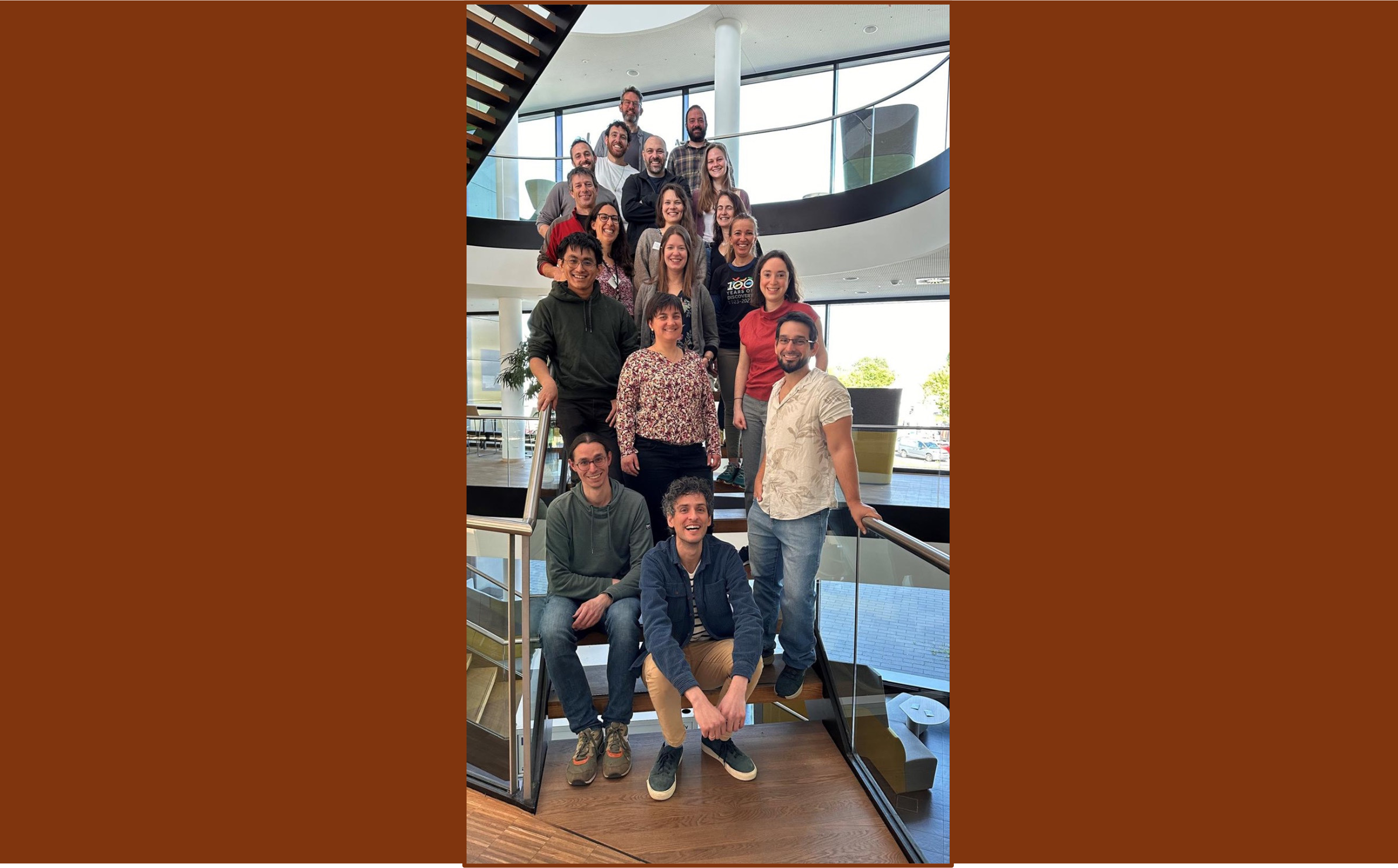
Very inspiring to spend the week at iDiv in Leipzig and brainstorm about range shifts with a big group of brilliant people from all over the world! The sRED (Range Edge Dynamics) working group aims to synthesize the different mechanisms that influence range limits and shifts. I’m part of a subgroup that tries to conceptualize and test how ecological interactions contribute to range shifts. And what a productive week it ended up being: a lot of discussions, drawing on whiteboards, running analyses, and even writing the first paper! Looking forward to the next meeting already!
April 2025
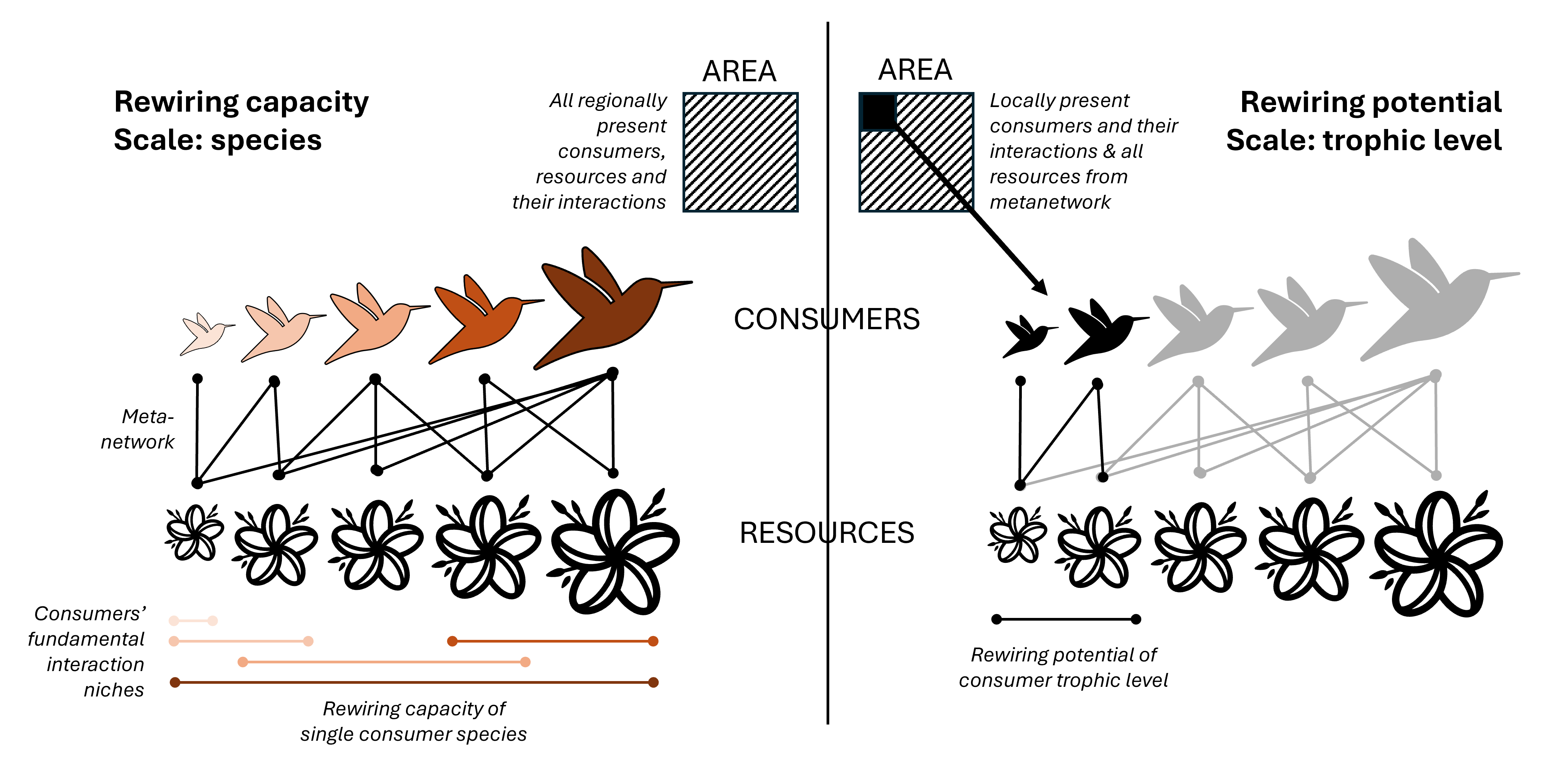
New paper out! It’s been a long process but I’m so proud of this first publication of my MSCA fellowship. The paper introduces the conceptual basis of functional potential that species and communities have to reorganize their interactions under global change. When considering species’ functional traits, we show that it’s possible to understand why some species can more easily find new interaction partners if their current partners disappear or if they are introduced to a new environment by humans. We illustrate the framework with a case study on hummingbirds and flowering plants, showing that the potential for reorganization in both hummingbird and plant communities is high across the Americas.
March 2025

It’s always a pleasure to attend Oikos Finland conference and see old friends across the country. This time it’s even a bigger pleasure as the conference was organized in Jyväskylä where I did my undergrad studies. It was great to return to the Jyväskylä University campus and present my work on seed disperser vulnerability in familiar halls. After a week of intense conferencing, I also visited my old group, Helsinki Lab of Ornithology, at the Natural History Museum in Helsinki. Although it’s been a couple of years since I left the group, they always make me feel welcome. And the museum is such a beautiful workplace!
February 2025
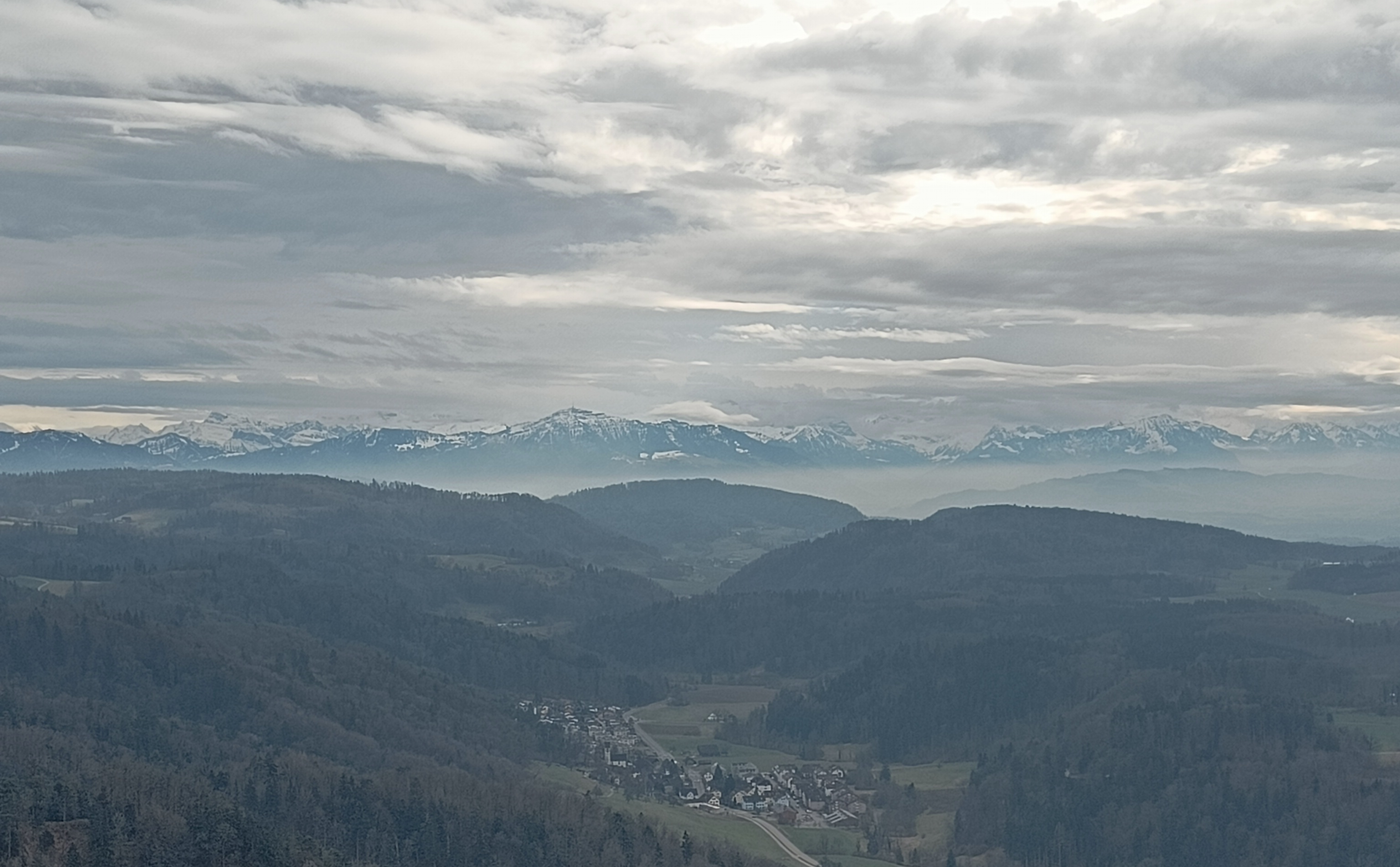
I spent a week visiting Catherine Graham’s group at WSL institute near Zurich this month. It was a wonderful opportunity to hear about the group members’ work on hummingbirds and flowering plants in both observational and experimental contexts. I learnt so much new about hummingbirds’ evolutionary history, behavior, and preference for flowers. I also got a chance to present my current work on how the past fluctuations in effective population sizes influence the current roles of hummingbirds in pollination networks. Outside working hours, it was great to see some topography around me, I hadn’t realized how much I missed mountains and tall trees while living in Denmark! The night trains took me there and back, making the on-land travels so smooth and convenient.
January 2025
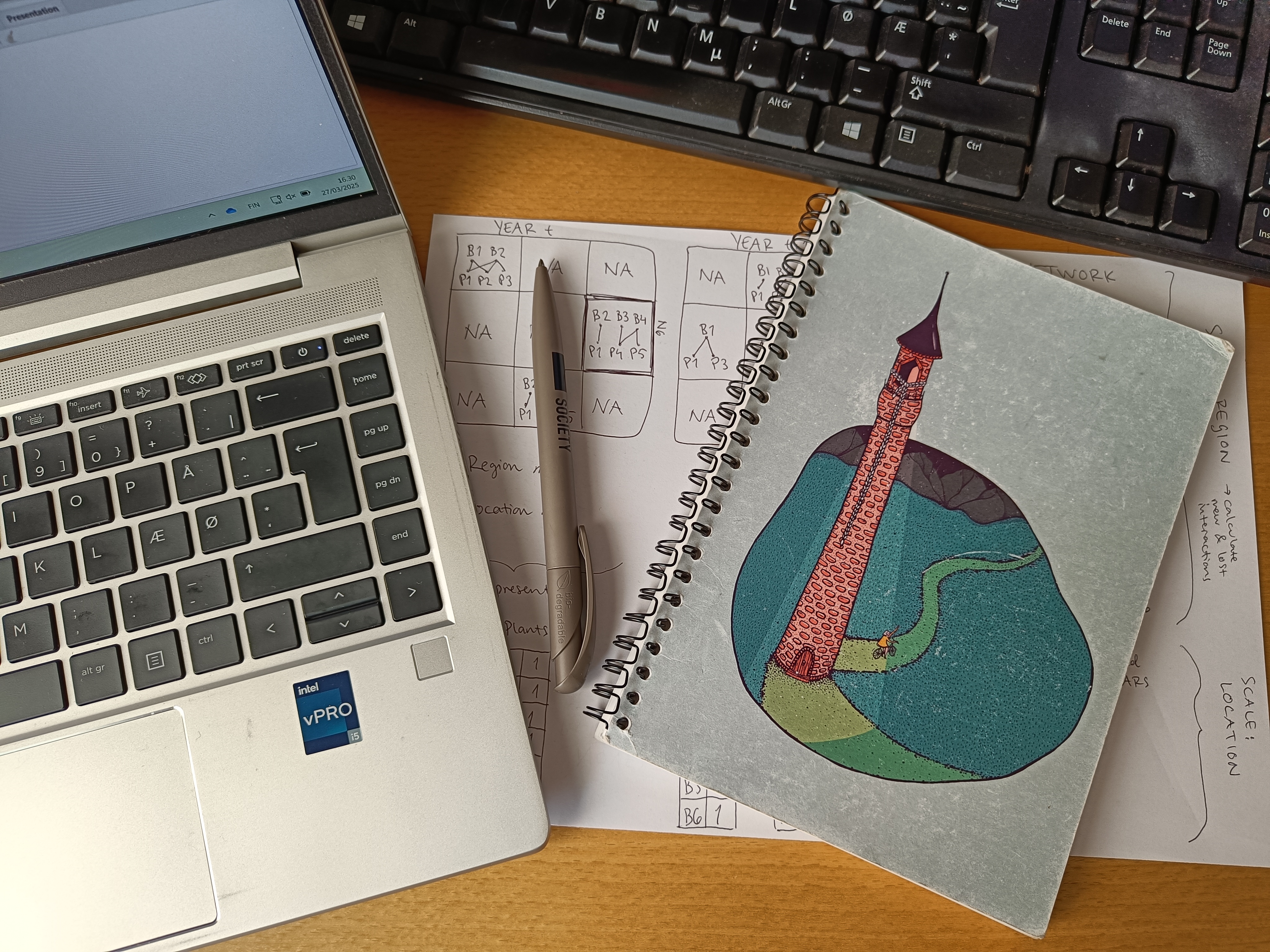
This year is again the year to apply for funding for the next project. First step was to organize old ideas and brainstorm new ones and to write a draft of a longer-term project that I can polish for different call throughout the year. The postdocs at the section of Ecoinformatics and Biodiversity share knowledge about grant writing in monthly sessions and offer support for each other, which makes the application process less daunting. For example, we have presented different international grants, given feedback on pitches, and formed writing accountability groups to facilitate the grant writing. Realizing that writing a successful grant always requires getting input and feedback from many different people has been the most important lesson for me so far.
December 2024
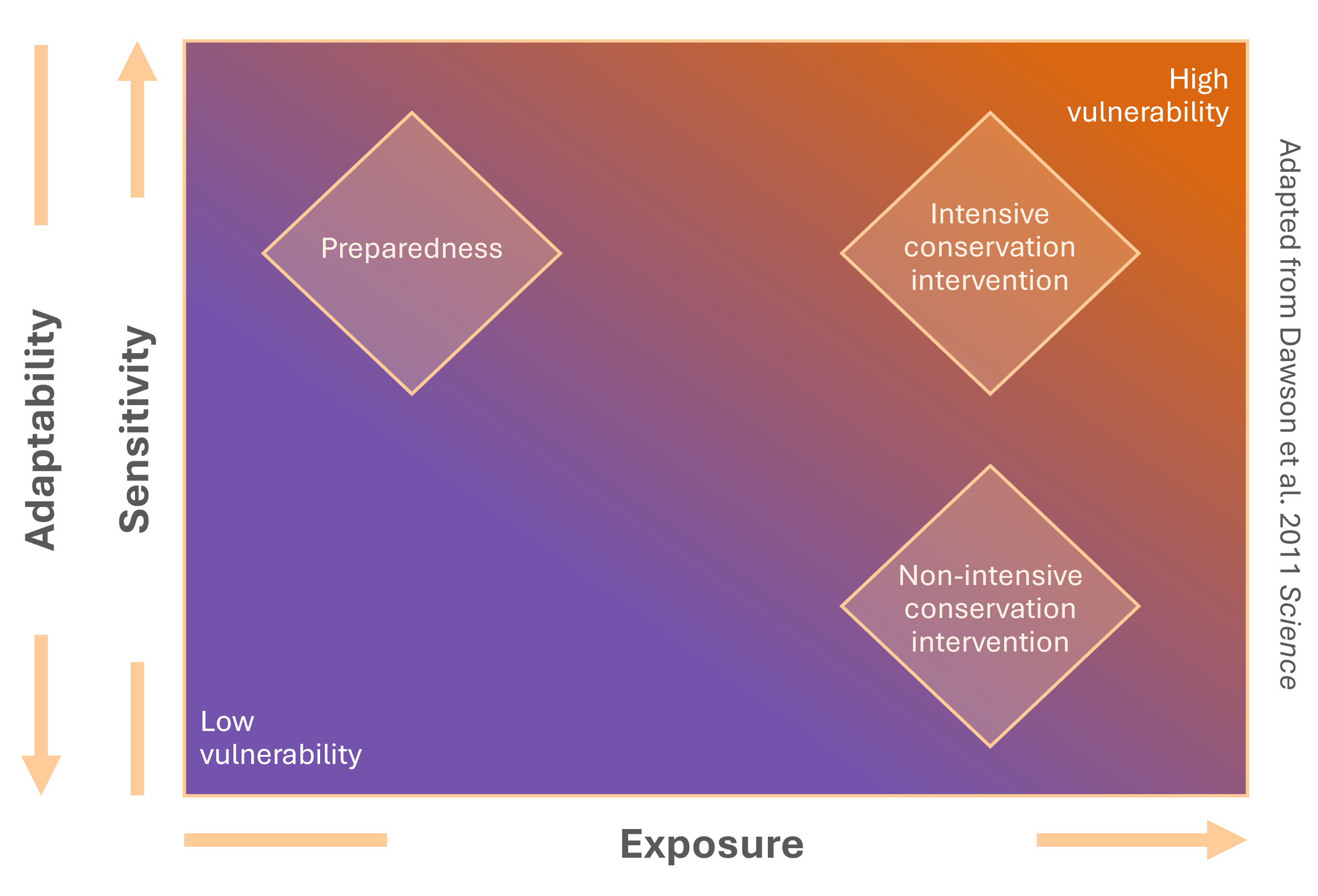
For me, starting a new project is always more fun than doing the final polishing of the ongoing projects. In the past month, I have started analysing seed dispersal network data for understanding how vulnerable the networks are functionally to losing species. It’s exciting to get new results and plot pretty maps, while figuring out the best ways to answer the study questions.
November 2024
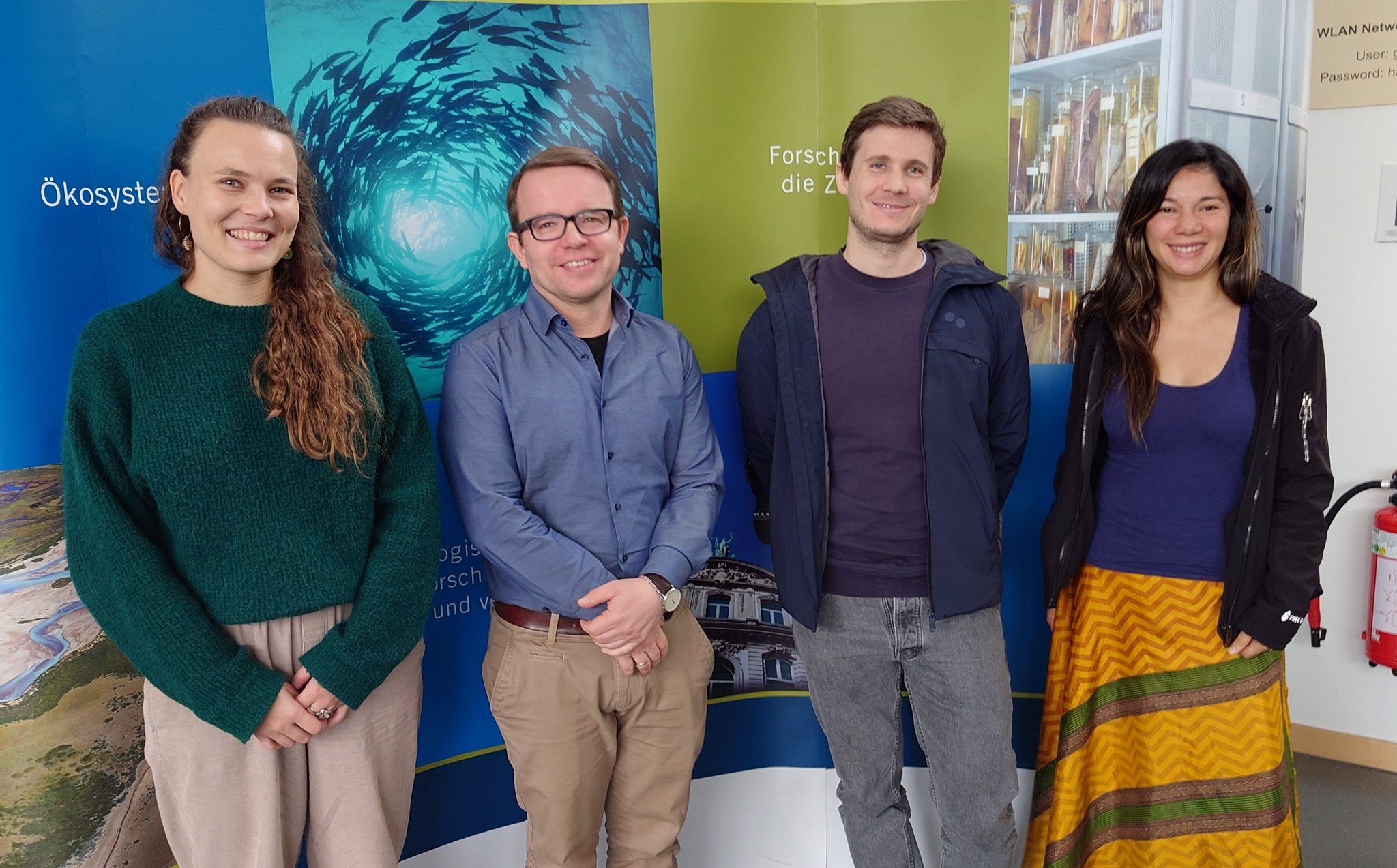
How can traits be used to answer important questions in ecology? I got a chance to give a talk about my trait-based research at Senckenberg Biodiversity and Climate Research Centre in Frankfurt, Germany. My talk covered concepts and methods on how to quantify vulnerability of networks under global change pressures. The other speakers in the symposium had very inspiring presentations that sparked interesting discussions afterwards: Carolina Bello (ETH Zurich) talked about trait-based mechanistic models to infer seed rain from birds in fragmented landscapes, Maximilian Pichler (University of Regensburg) talked about using machine learning and deep learning for inference in trait based research, and Jörg Albrecht (Hessian Agency for Nature Conservation, Environment and Geology) talked about using traits to infer biodiversity dynamics in a changing world. As the cherry on top, I visited the beautiful Natural History Museum!
October 2024
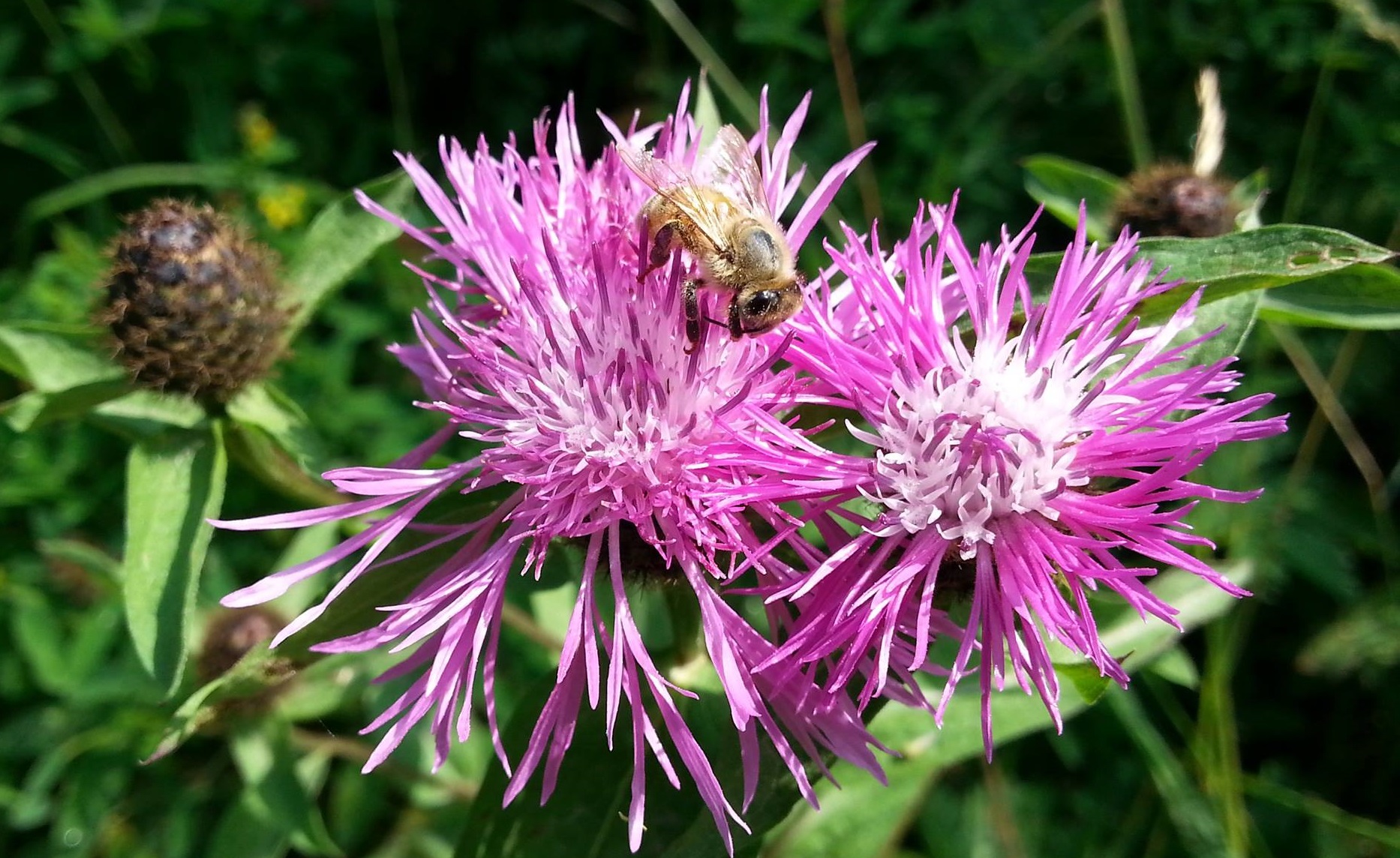
Finishing long-term side projects is tough when the new projects take over in their urgency. This autumn, I started a remote co-working session with a Norwegian colleague to bring to a completion our project on floral trait diversity changes that was started already in 2020. In practice, we now sit down every Thursday morning, turn on Zoom and write and/or analyze data with regular check-ins to chat about new results or references. This co-working routine has brought new motivation to the project and the manuscript is starting to take shape. Hopefully we’ll have something concrete to submit early next year. Stay tuned if you’re interested in land-use effects on functional diversity change in floral resources in Scandinavia.
September 2024
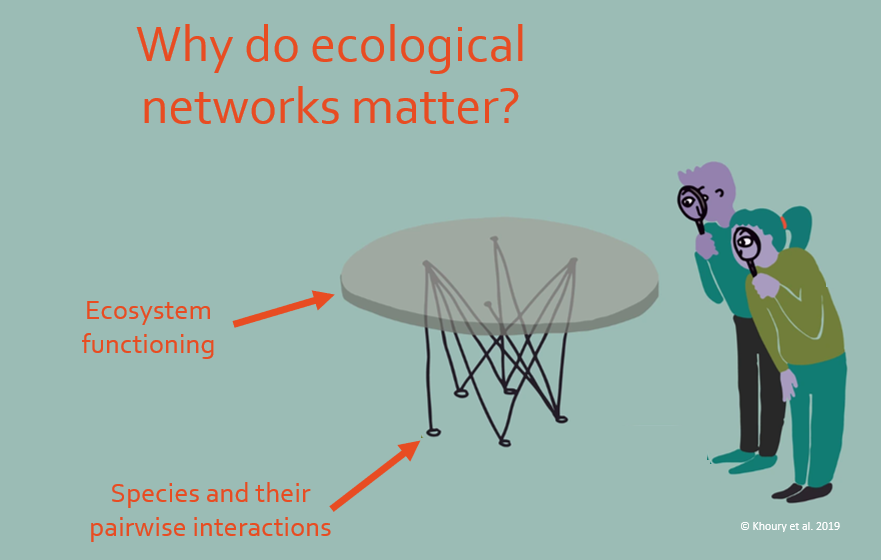
For once there was no need to travel far for a conference as the Conference on Ecological Dynamics in a Novel Biosphere organized by our own ECONOVO Center took place in Aarhus. Three days with a small but engaged crowd was great for receiving feedback on my on-going project. This was made especially efficient as we were encouraged to present both a talk and a poster. Although many of the participants were locals, I realized that I didn’t know as much about my close colleagues’ work as I had thought. Internal conferences have their benefits!
August 2024
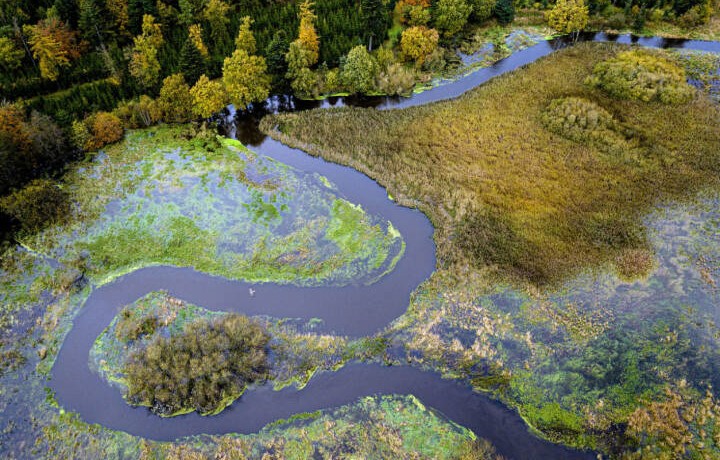
The yearly tradition of the Ecoinformatics and Biodiversity -section at the Biology Department of Aarhus University is to do a weekend canoe trip along the Gudenå river. This year, we started from the very upstream where the river is only a couple of meters wide. The two-day canoeing ended in the Klostermølle and especially the last kilometers the river was framed by beautiful old trees. It was wonderful to enjoy the last warm days of the summer on a canoe, while floating past the Danish landscapes. It was great to get to know my colleagues and their families better. And for the first time, I saw a kingfisher!
July 2024
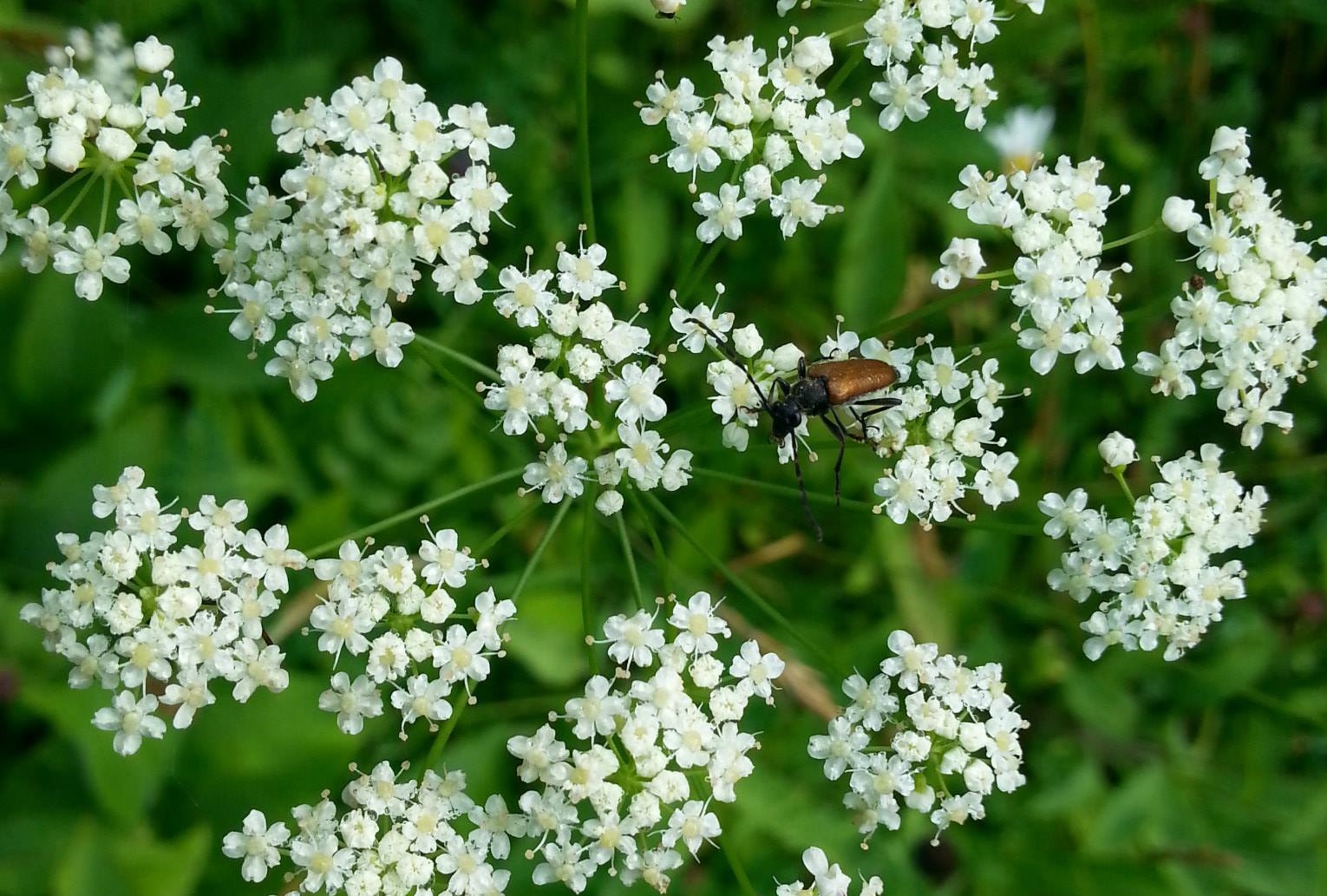
Everyone else is on vacation but I’m at the office, which seems like a nice time to work on a small side project. A few years ago together with Swedish and Norwegian colleagues, I collated flower traits for insect-pollinated plants in Scandinavia for a bigger project that never took off in the end. Recently, we decided to make use of this nice trait dataset ourselves and study how functional diversity of insect-pollinated native plants has changed over time in Southern Sweden. Working on an ecosystem so closeby and knowing a majority of the study species has been refreshing. I’ve also learnt so much more about the already familiar species by working with the Swedish experts. The preliminary results show that functional diversity is decreasing slower than species richness, which still should be linked to land use change. It will be a long way, but I look forward to getting these results published one day.
June 2024
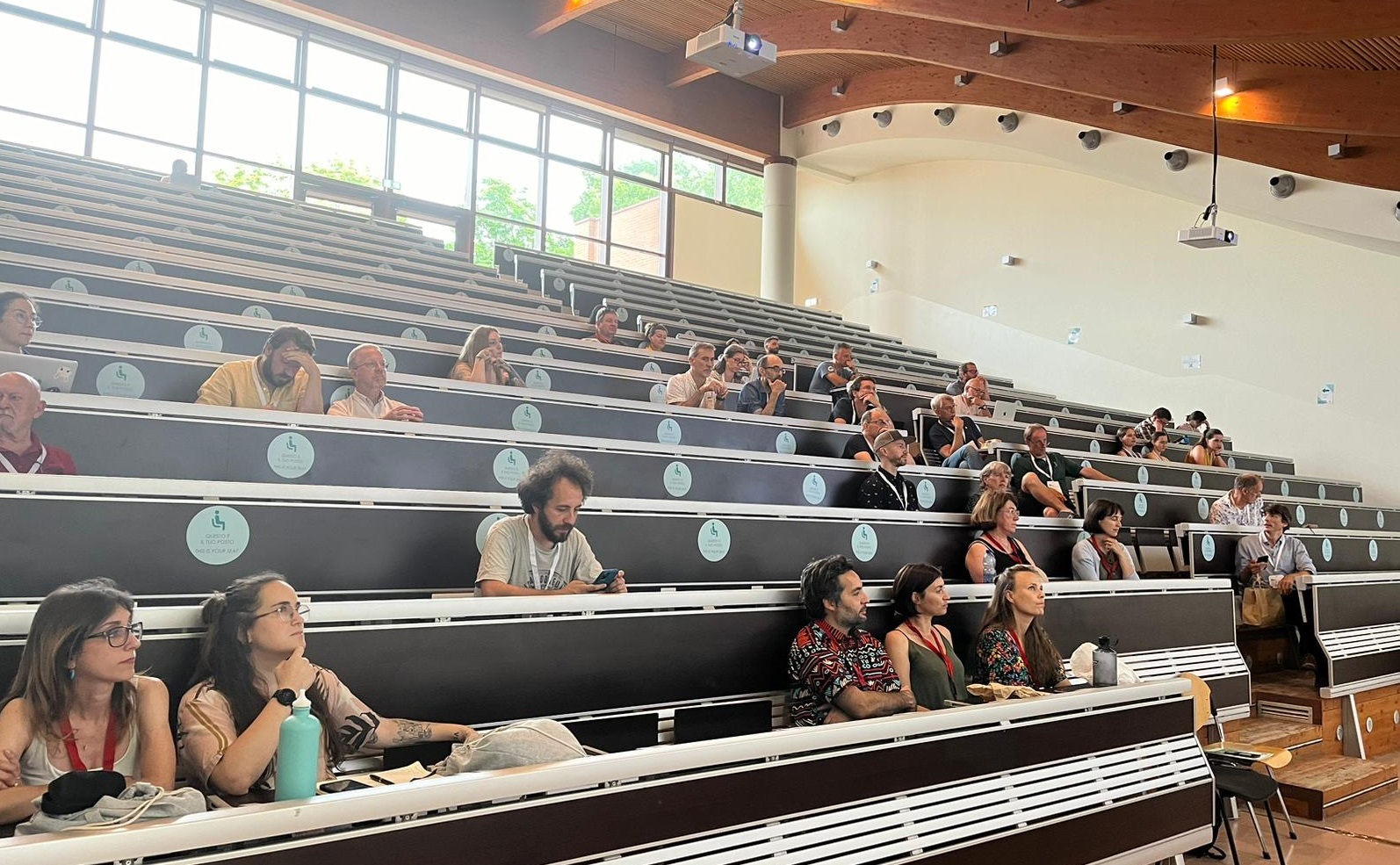
After two years of planning, the 7th European Congress of Conservation Biology finally happened in sunny city of Bologna, Italy. I had participated in the conference in 2018 (in Jyväskylä, Finland) and in 2022 (in Prague, Czhecia), but this time I had an additional role as Society for Conservation Biology Europe Region’s board member. As a board member I organized several events during the conference, all aiming at increasing inclusion in conservation science. On the first day, we organized an early-career icebreaker to make sure everyone has some familiar faces for the rest of the week. On the subsequent days, we organized a lunch discussion on how to make conservation fieldwork more inclusive and just and a speed mentoring event to connect early-career with more senior mentors. All events were very successful and I definitely plan to organize them again in the next ECCB in 2026. The biggest accomplishment of the week was to accept the new by-laws of the society, which solidified the Diversity, Equity, Inclusion, and Justice Committee and the role of the DEIJ officer in the actions of the society in the long term. I’m now officially the DEIJ officer of the society!
May 2024
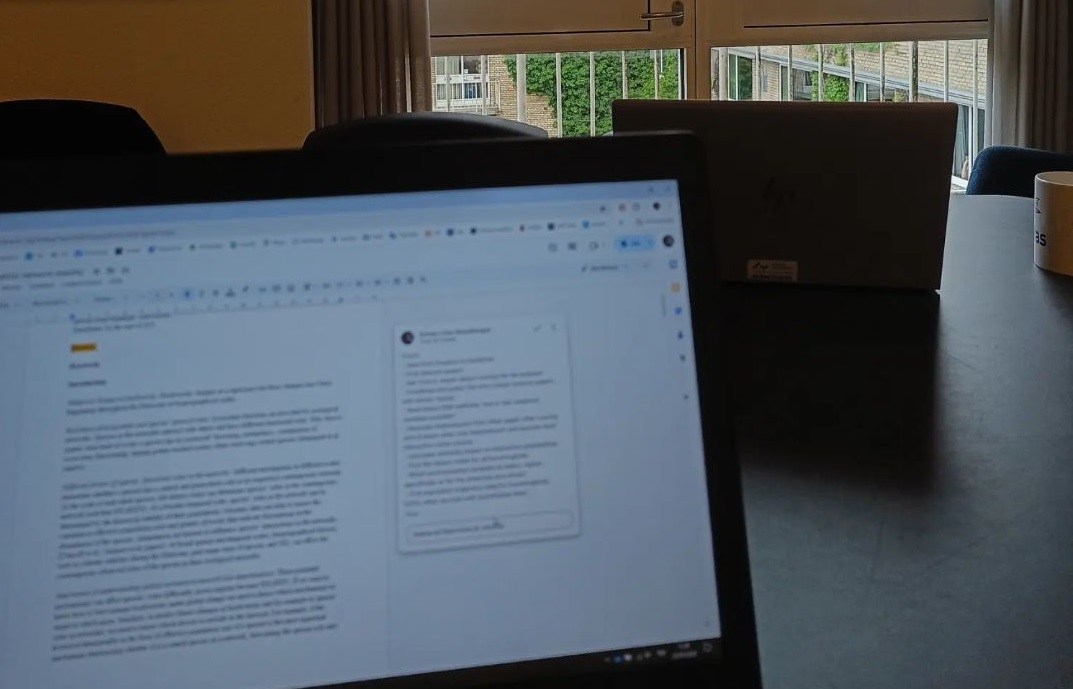
It always takes me a while to get back into writing when starting a new project. This time, I decided to create a support system for myself so the writing would be a bit easier: a weekly writing club with other postdocs and PhD students at the section. During May (and continuing after the summer holidays) we have been gathering in a meeting room every Thursday for writing. Each writing club session starts with a round where everyone tells shortly about their task of the day. We write in 45 minute blocks and take 15 minute breaks between blocks, repeating this three times. During the 45 minutes, we make a deal not to have anything else open but the text document to minimize any distractions. The club has worked wonders! I’ve gotten my first manuscript from almost zero to complete draft. Everyone has been so surprised about their efficiency that the number of participating people has increased from three to >10. Accountability and minimizing distractions is the key!
April 2024
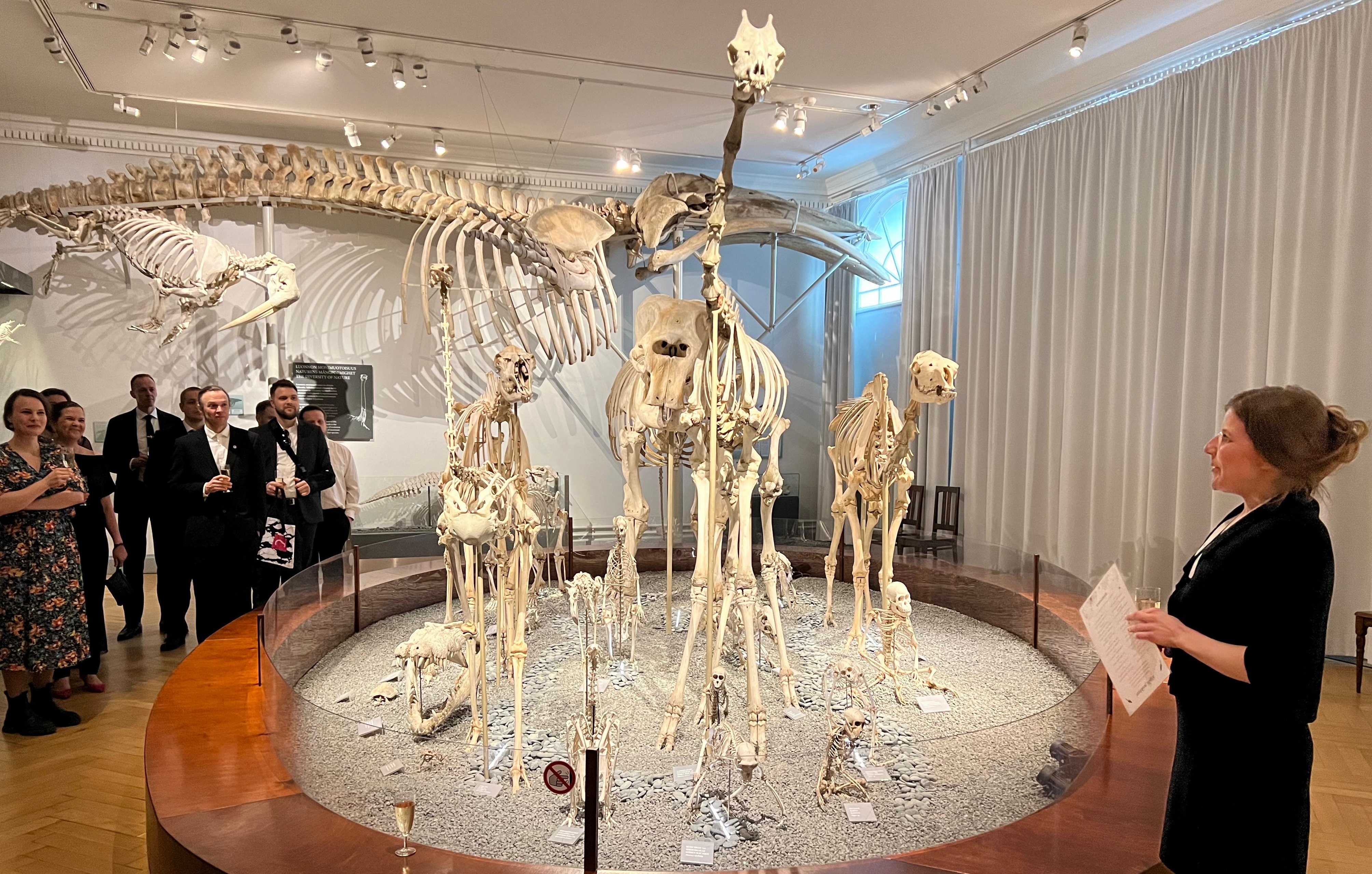
Leena Hintsanen aced her defence and earned her PhD degree! For the first time, I got to sit in the audience in the role of a very proud supervisor. Leena’s PhD thesis ‘The role of protected areas for boreal bird populations and communities in the face of climate change’ draws conclusions on how to manage conservation of bird species and communities in protected areas under climate change in Canada and Finland. The opponent professort Grzegorz Mikusiński from SLU in Sweden asked interesting questions that allowed a fascinating scientific discussion that was also audience-friendly. Leena’s achievement was celebrated afterwards in an appropriate and Finnish way with a ‘karonkka’ dinner at the Finnish Museum of Natural History. Not everyone gets to toast to their PhD in an exhibition of extinct and extanct species’ bones.
March 2024
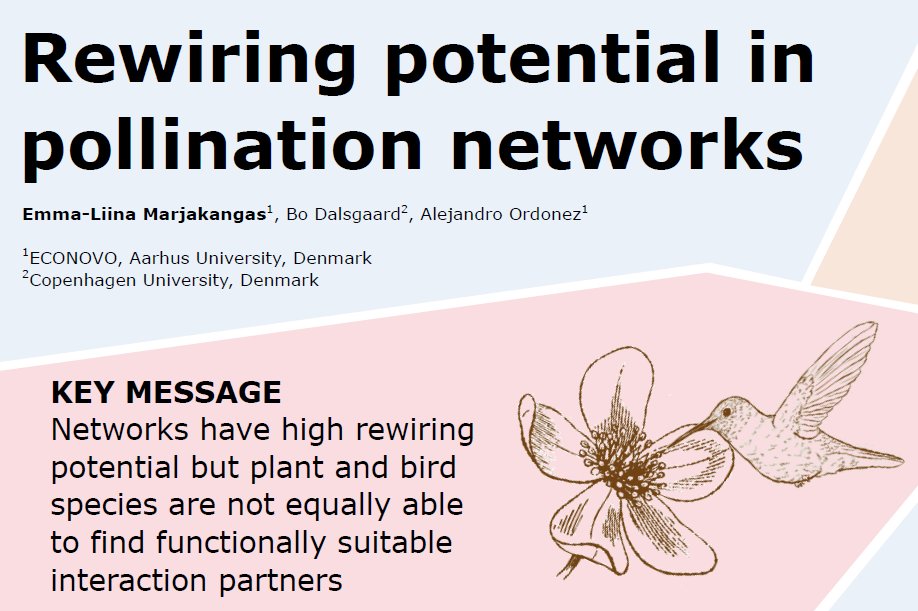
Excited to join the biennial Nordic Society Oikos conference in Lund, Sweden. Oikos conferences always offer a selection of ecological and evolutionary biology presentation, leaving me with broader general understanding of my field. I presented my latest work on interaction rewiring in hummingbird-flowering plant pollination networks with a poster that was so much fun to make after many years. Oikos conferences also offer the opportunity to catch up with old friends accumulated during my research journey through the Nordic countries. The conference did a great job at offering vegetarian lunches and a vegan dinner, spiced with a live saxophonist playing on the dancefloor after the dinner. The next one will be in Odense, Denmark in 2026, you will see me there for sure.
February 2024
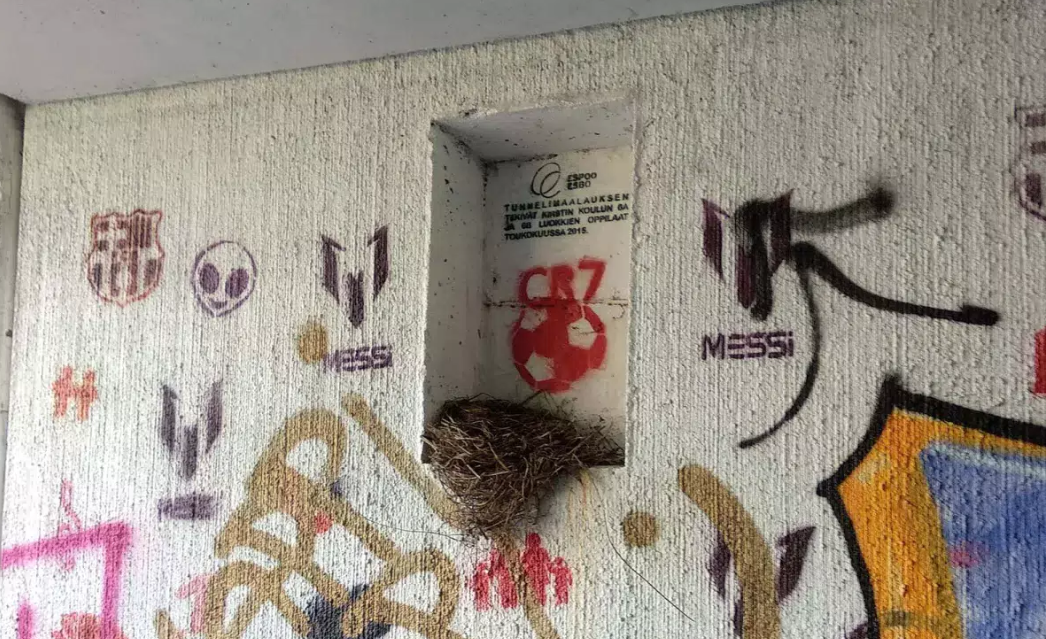
Our dataset of >6,000 bird species’ tolerances to human pressures is now published in Global Ecology and Biogeography. We found that most birds cannot inhabit areas that are under most intense human pressures and sensitivity is linked to declining population trends and increased endangerement. The article has gained some public attention, stemming from the press release. For example, the article was featured in a poem by Sam Illingworth, the person behind the Poetry of Science. His beautiful poem ‘Fettering their Nest’ describes how only few species can survive surrounded by “concrete colosseums” and “canyons of steel”. It’s motivating to know that scientific research can inspire art and hopefully political actions too.
January 2024
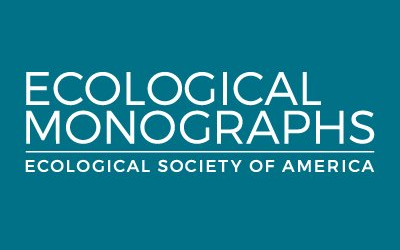
I got the honor to join the editorial board of Ecological Monographs as a Subject-Matter Editor from mid-January. I will get a new perspective to the scientific publishing when handling submissions related to community & network ecology, biogeography, functional traits and global change. As one of my PhD thesis chapters was published in Ecological Monographs, I feel like I have a special relationship with the journal. And what makes the editor duties especially rewarding is that Ecological Monographs is a society journal, owned by Ecological Society of America. Thereby, the editorial work will benefit the scientific community more directly. I hope I will be lucky in my hunt for reviewers…
December 2023
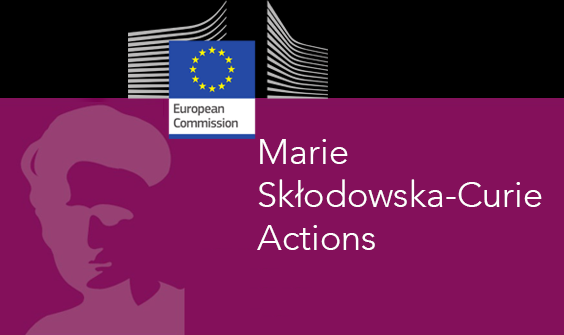
This is my first official month as a Marie Skłodowska-Curie Actions Postdoctoral Fellow! Not much changed in terms of my research work but it’s exciting to be part of the huge community of MSCA fellows across Europe and globally. A few practical things also change when shifting from personal-grant-guest-researcher position to a salary-postdoc position at the university. I now have vacation, more paperwork, better income, access to all university systems and support and, most importantly, a new laptop. The project on mutualistic network rewiring continues and I will present the first interesting results in International Biogeography Society’s conference in Prague in January.
November 2023
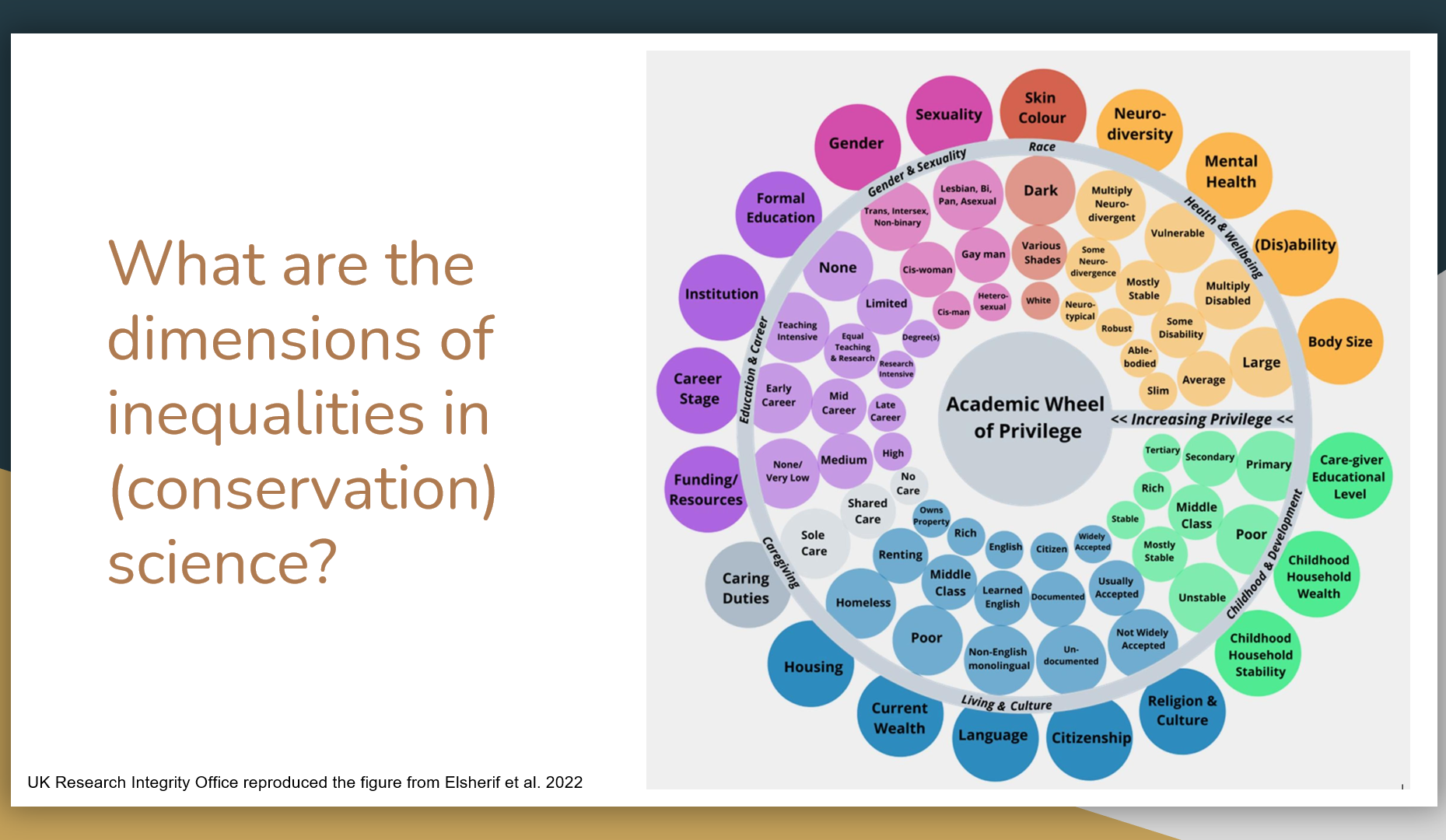
One of the biggest endeavors of this autumn was the SCB Europe’s Fall Webinar that gathered a lot of interesting talks on conservation science from ecological and human perspectives. In addition to the conservation-focused talks, I organized a session on diversity, equity, inclusion and justice. It was both intresting and frustrating to dive into the literature on the DEIJ issues in (conservation) science to create the presentation. In the end, it was worth it as attendees were eager to discuss how conservation and academia could be transformed to be more diverse and inclusive. We got a lot of great suggestions for the work being done at Society for Conservation Biology, for example to make our conferences accessible to people and leveling the playing field of conservation science for people from different backgrounds. I’m the chair of the new DEIJ committee at SCB Europe and we are always open to new members and ideas, feel free to contact me!
October 2023
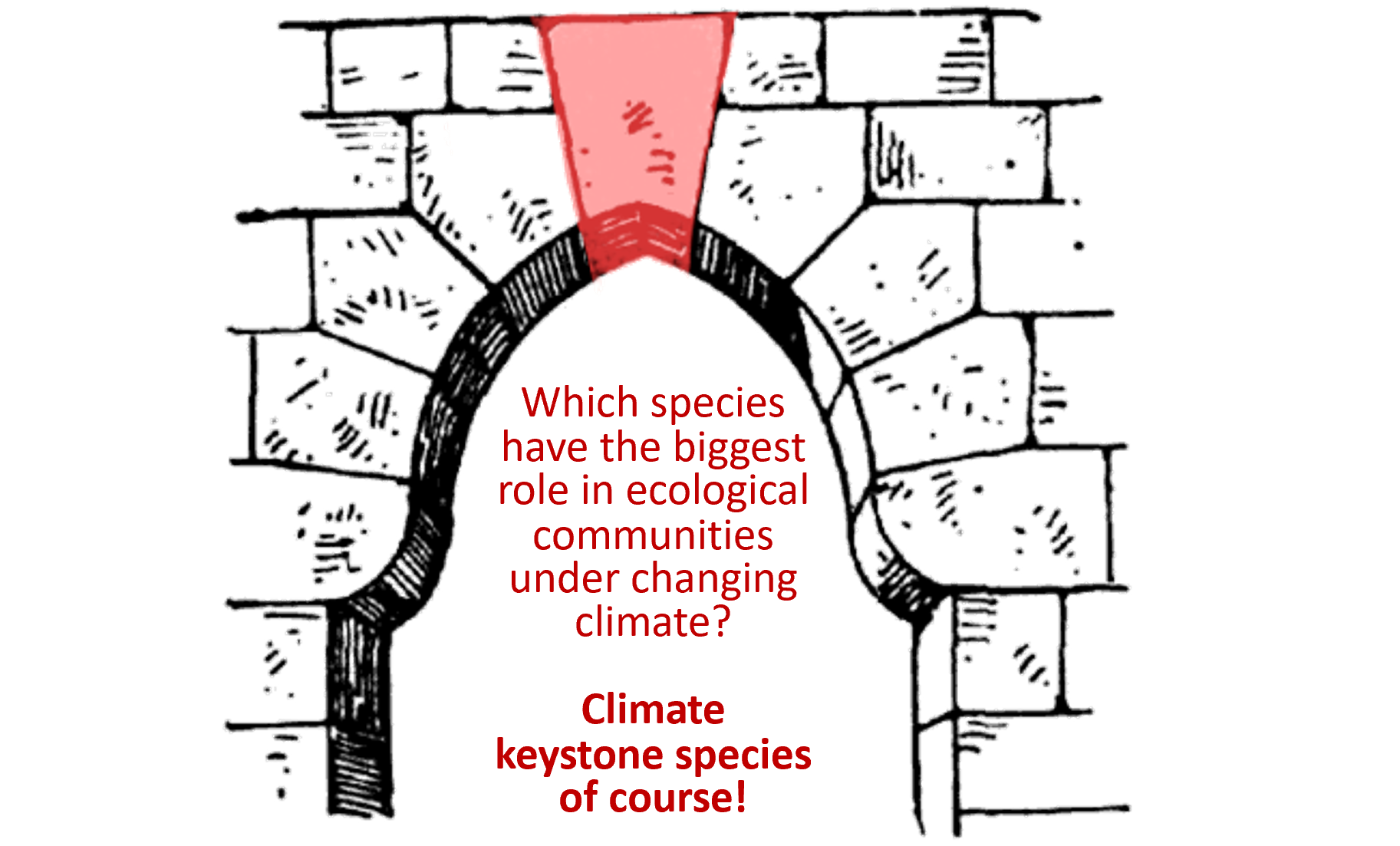
A recently published paper has been included in an issue in Diversity and Distributions! In the paper, we developed a conceptual and statistical method for identifying species that can have a big and unique role in the larger community under climate change. The method can be applied to any ecosystem and species group that has enough information on the temporal changes in the community’s species composition and on the species’ traits. Climate change is and will be a big problem for many species that require conservation efforts. Conserving climate keystone species under changing environmental conditions focuses on the functionality of communities and ecosystems, rather than single species. Focusing on functionality is essentially focusing on tipping points: how many species with important functions can you remove before the ecosystem collapses beyond the help of any restoration. It was very inspiring to work on the paper together with a couple of new coauthors!
September 2023
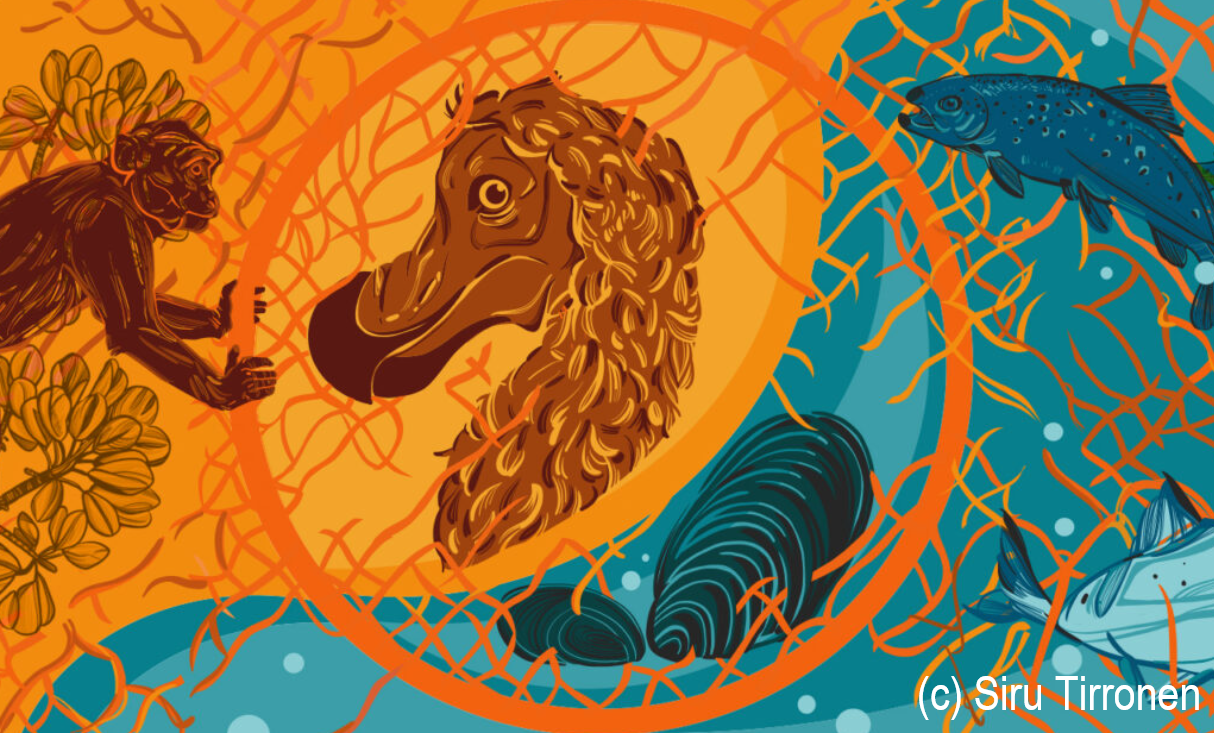
My first attempts at science journalism is now well and live at Suomen Luonto! Following the great workshop in the spring, I got the opportunity to write a blog post and a long article to the largest nature magazine in Finland. These pieces feature the research themes close to my heart and the sadness for the biodiversity loss that I (and many other ecologists globally) experience. The article illustrates the parallels in human effects on species interactions globally by following two ecosystems and species pairs through centuries and shows why every extinction counts. The blog post tells about the small changes that we can make in our immeadiate surroundings to aid biodiversity and to avoid feeling desperation. The full story and the blog text are available in Finnish.
August 2023
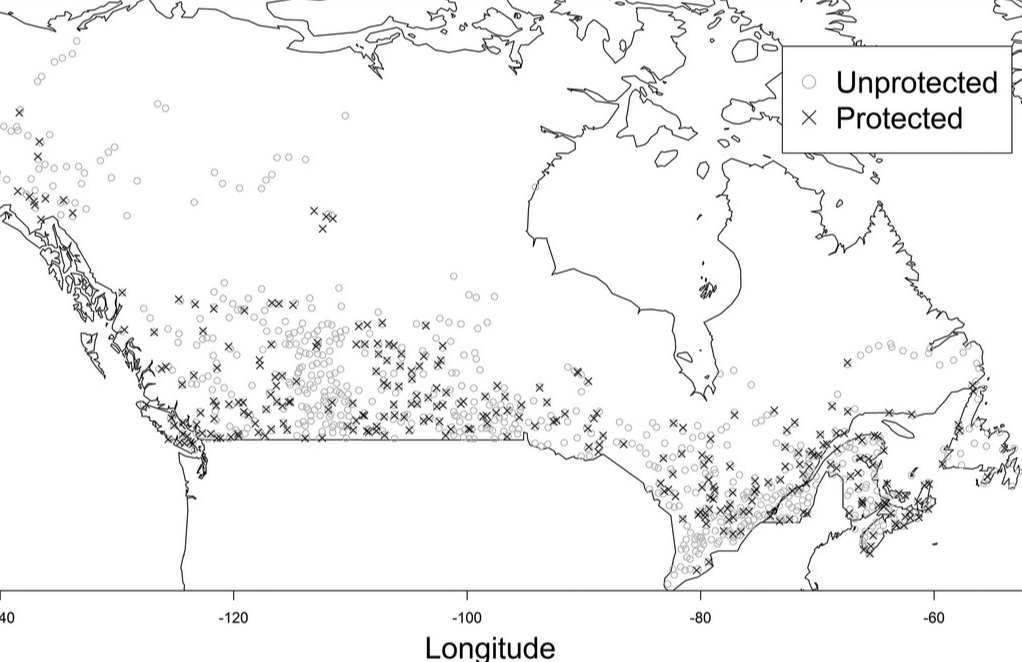
The first paper from Leena Hintsanen’s PhD thesis is now published in the great society journal of Conservation Biology! Leena has been one of the first people to use Canadian Breeding Bird Survey data with exact coordinates of each point count, allowing her to know which observations are really done in conservation areas and which outside them. The rather worrying results show that protected areas can’t mitigate bird community composition changes under warming climate. Even though the temperature preferences of birds inside the protected areas were still cooler than those of birds outside protected areas, the communities from protected areas are fast starting to resemble the communities from outside protected areas. Basically this means that protected areas can no longer provide microhabitats and refugia for species preferring cooler climates, which means double-threat for them under climate change. Read more about the underlying mechanisms in the open access paper.
July 2023
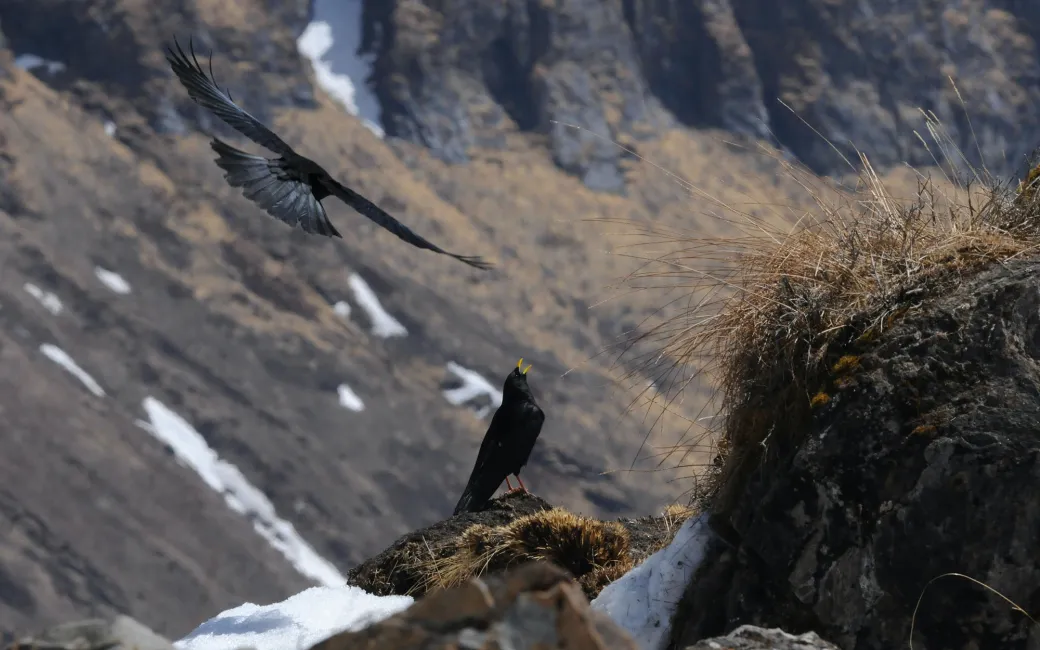
A couple of years ago our team of postdocs in Helsinki Lab of Ornithology started a shared project on European bird community changes under climate change and the paper is now out in PNAS! These communities have shifted northeastward in the past 30 years, but the shifts are faced with obstacles, such as mountain ranges and coastlines. Overall, bird communities are moving towards cooler areas but not fast enough to keep up with increasing temperatures. Working on this paper was such a pleasant experience, the division of work was smooth, deadlines were respected and all the science conversations were extremely interesting and constructive. I’m so proud of the team and the paper, this is how teamwork should be like! See press release here in Finnish and in English. And here’s the link to the original paper.
June 2023
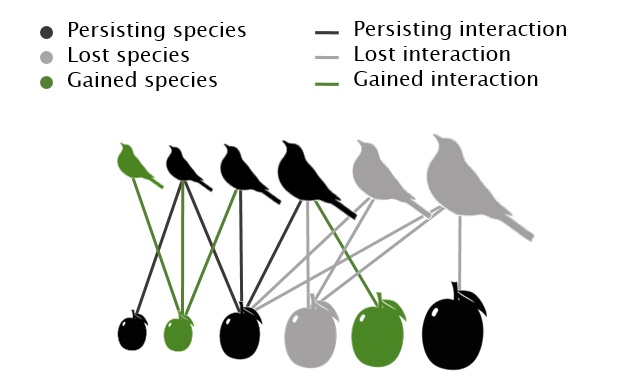
Greetings from Aarhus from a fresh Marie Skłodowska-Curie Actions Fellow! I had been reserve-listed in February and thought I would never get the grant, but luckily more funding became available from EU and I was granted the MSCA fellowship after all. It will take some time to fully process this information, but I’m so excited to start working on seed dispersal and pollination networks again. See more on the Projects-page. I trialed the train-ferry traveling from Finland to Denmark this month, which will surely be my regular way of transportation in the next years. In summary: trains win and planes lose, see the Twitter thread here!
May 2023
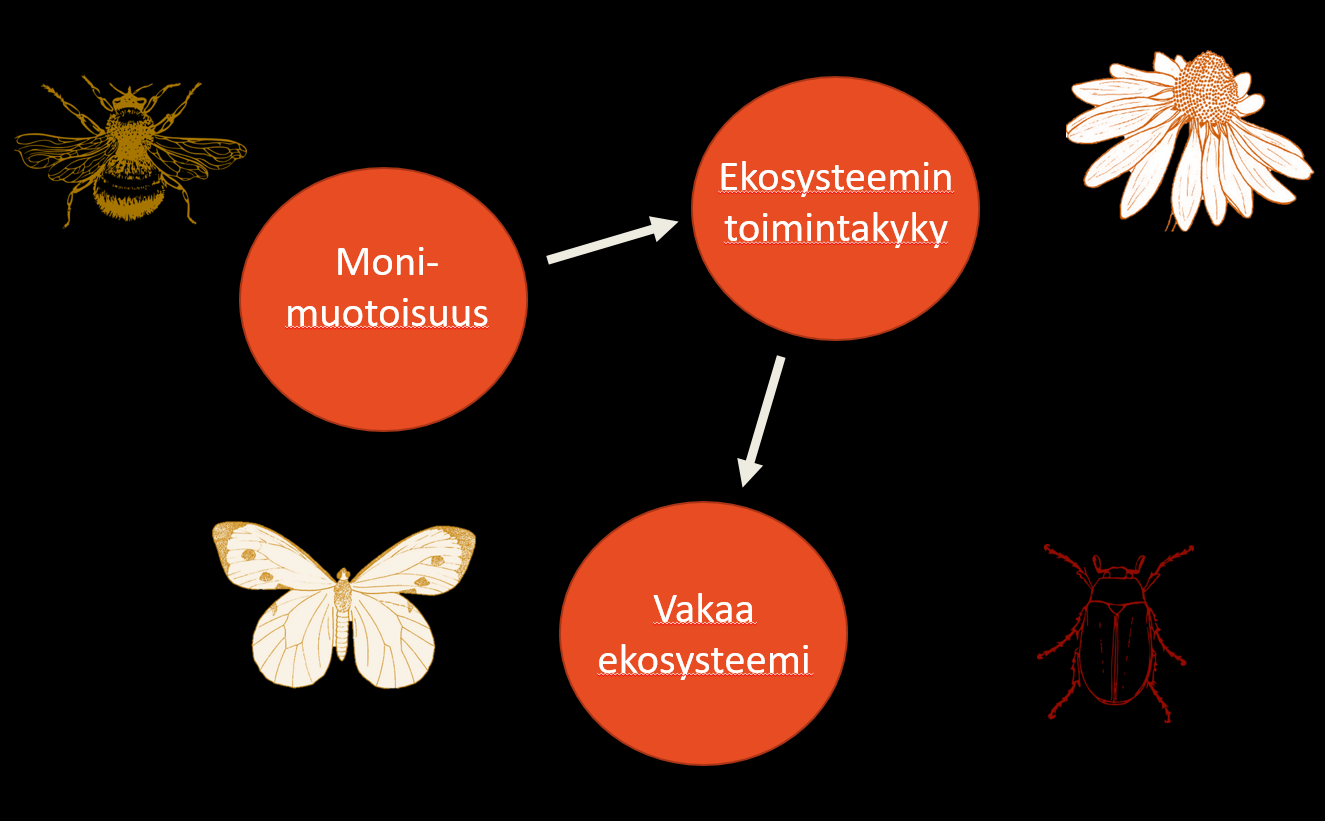
I got the great opportunity to give a public lecture on biodiversity in Porkkalan lintuviikko in Kirkkonummi. This was the first time in years that I gave a lecture in Finnish and the first time in years that I gave a lecture targeted to the general audience. Porkkalan lintuviikko is a yearly event for anyone interested in nature and birds and it includes public lectures and field trips. Although Friday evening was not the best time to attract a lot of people, the audience was interested in learning how the biodiversity ensures a stable and functional ecosystem. The highglight of the evening was to have my mother in the audience learning in more detail about my field of work and my own research. Thanks mom for joining! The lecture will be available on Porkkalan lintuviikko’s Youtube channel soon!
April 2023
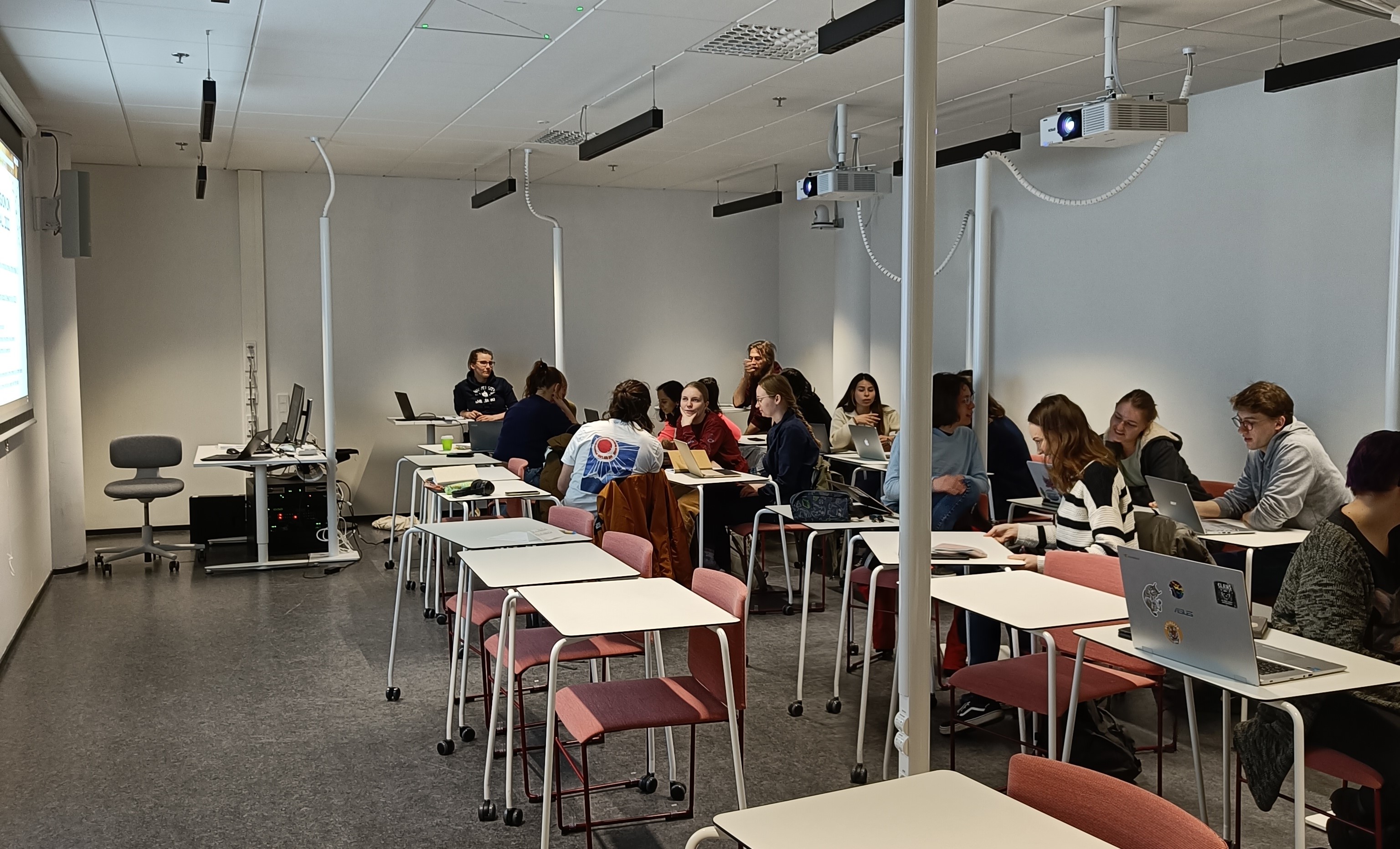
This spring, the Helsinki Lab of Ornithology has been piloting a course ‘Climate change and biodiversity: impacts on birds’ at University of Helsinki. We have put our heads together to come up with a curriculum that covers climate change impacts on birds from morphology, population dynamics, communities and conservation perspectives. The ~20 MSc students have been great at discussing papers with us and asking critical questions. This course has given us the opportunity to explore pedagogical alternatives to lectures+big exam -format. As a result, the students are preparing graphical abstracts and figure interpretations on selected articles, which will count towards their grades. We have been very impressed by the quality of work. On the right the students are discussing Stewart et al. 2022 paper in class; I like it when I don’t have to do all the talking!
March 2023
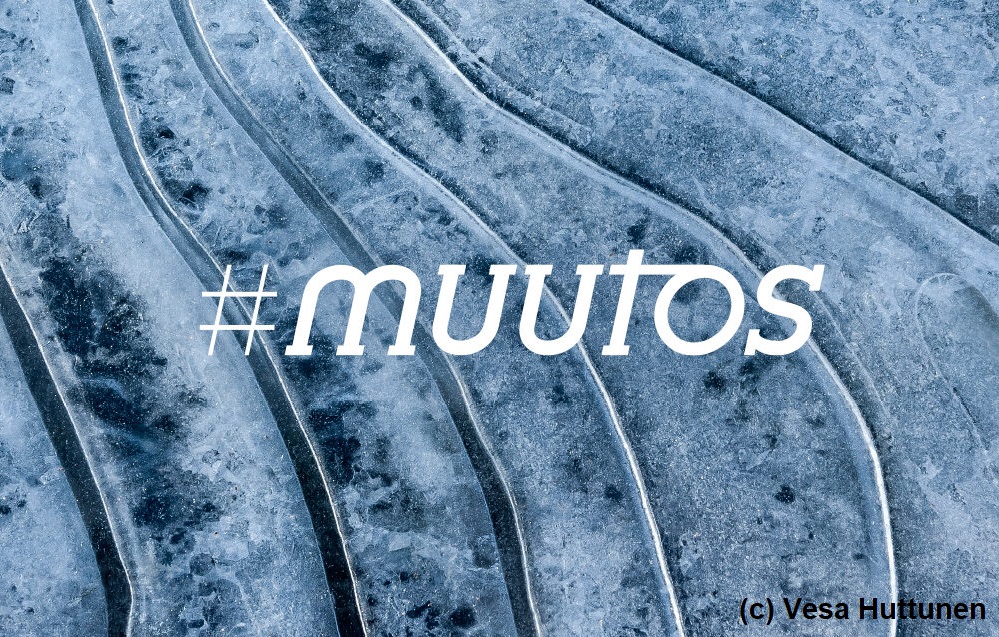
I currently have a couple of months before I start the next postdoc project so I try to use this time to learn new things that I haven’t had time to learn before. As a part of that, I participated in a two-day course on science journalism organized by Suomen Luonto, the biggest nature magazine in Finland. Writing popularized science text can be tricky for us scientists being used to writing scientific articles. Being bold enough to generalize things, stepping outside the topic and letting other people be experts, and inventing scientific terms in Finnish were big lessons to learn from the course. This #muutos section in Suomen Luonto will feature plenty of global change -related popularized science articles in the next fall, maybe you’ll even see something from me there!
February 2023
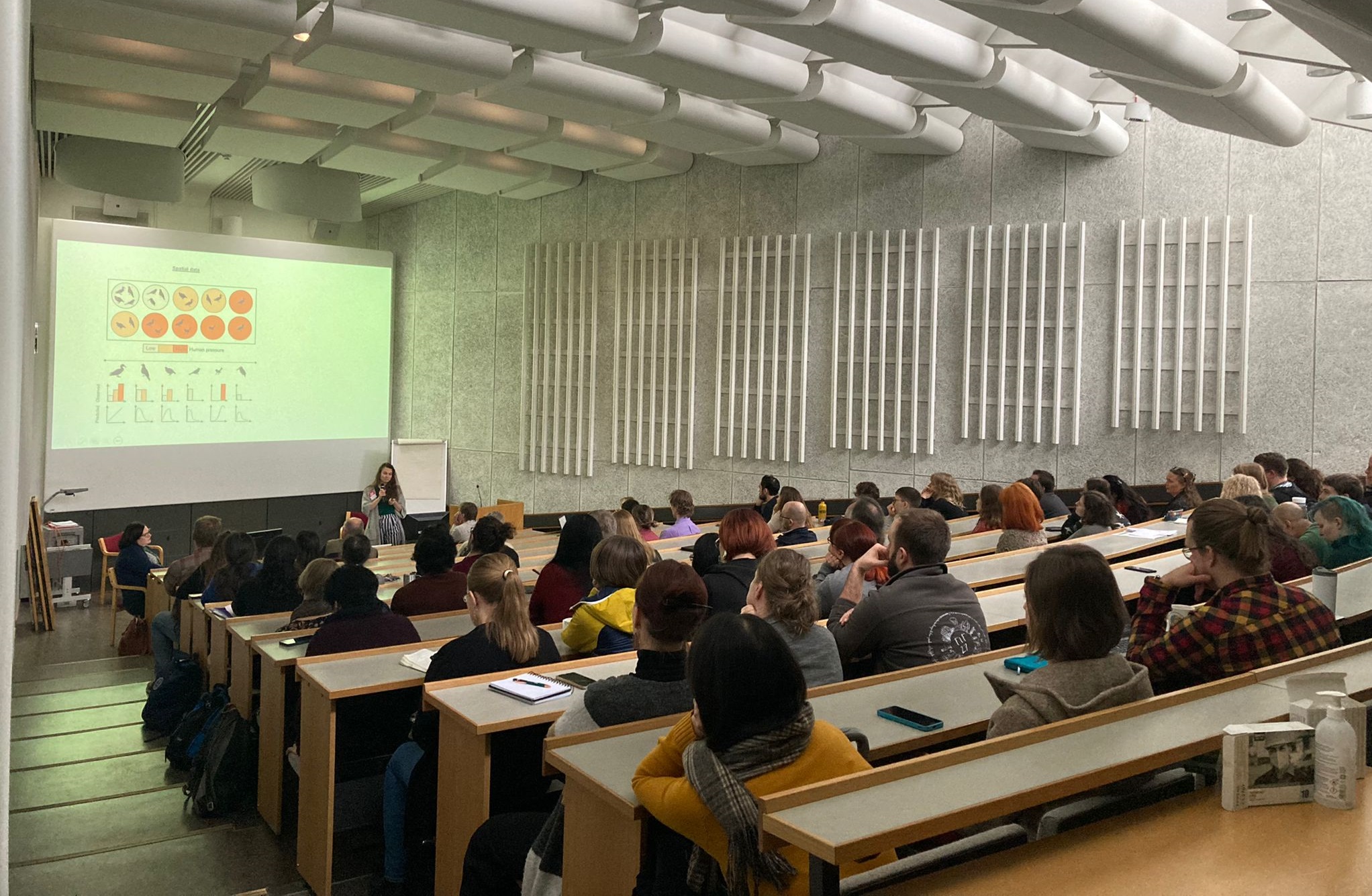
Oikos Finland 2023 was a great success! Before the conference, I co-hosted a workshop on ‘Careers outside academia’, which made me and the workshop participants a bit more hopeful about the future even if the door to the university jobs close. The speakers from different lines of work highlighted useful skills stemming from doing ecology PhDs, such as coding and project & budget management. After speakers’ presentations, in ‘career speed dating’, workshop participants got to meet with all speakers and ask more specific questions about the speakers’ career paths and their current organizations. If you’re interested in knowing more about careers outside academia in Finland, contact me and I can share some of the summary material. In general, it was rewarding to be one of the conference organizers, because it gave me a chance to implement all those environmental and equality measures that I have been hoping to see in other conferences. Most importantly, I hope that we set an example for future conferences that serving fully vegan food is possible and doable. Being one of the organizers did mean less time spent listening the talks and preparing my own, but I did get to present my work-in-progress study on tolerances of world’s birds to human pressures!
January 2023
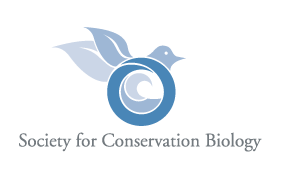
Big news to start the new year: I have joined the board of Society for Conservation Biology, Europe section! I’m really excited to start working on the next ECCB conference, facilitating science-based policies based on conservation research and supporting early career conservation scientists across Europe with awards and opportunities to join interesting webinars. All that should keep me busy during the three-year term on the board!
December 2022
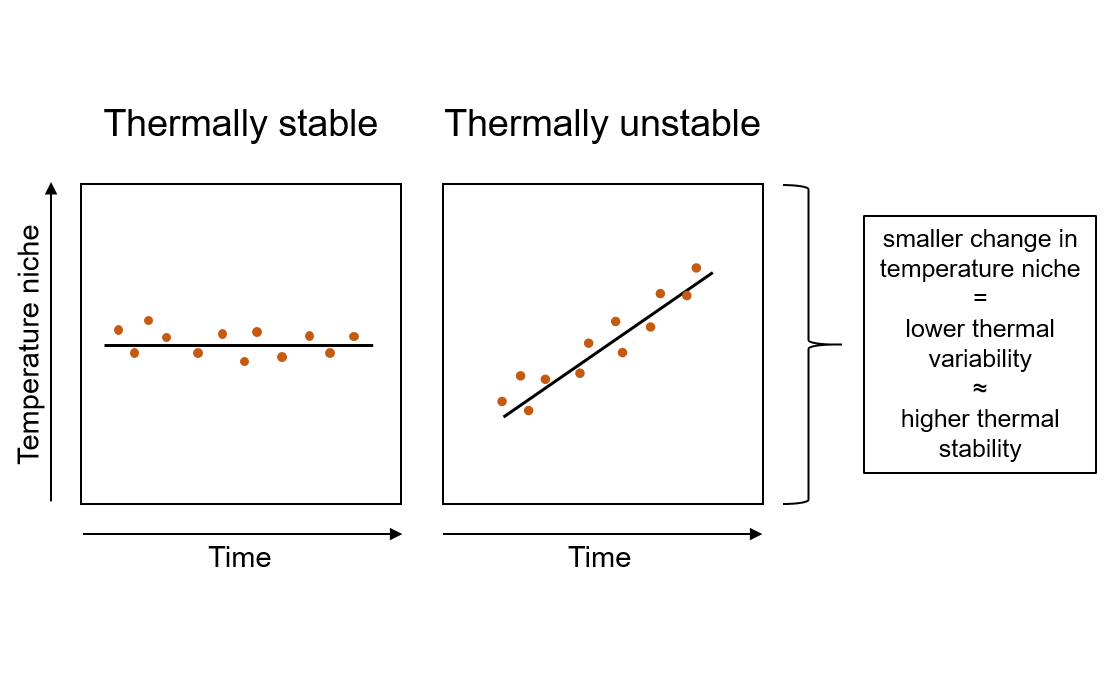
We all have those papers that have been looking for their final home for a long time. For me it has been this study on the community diversity effects on birds’ thermal “stability” under climate change. Finally I can open my celebratory bottle of beer and announce that it has been accepted to Scientific Reports!! Especially in the winter, the overall level of functional diversity in the bird community can buffer the effects of climate change on the community structure. Most importantly, having multiple trophic levels represented in the bird community is especially beneficial for the buffering against climate change induced changes in the community structure. Yet another reason to address biodiversity and climate crises together and not separately! You can now find a link to the open access article in the ‘publications’ page! Here are also links to the press release of the publication in English and in Finnish.
November 2022
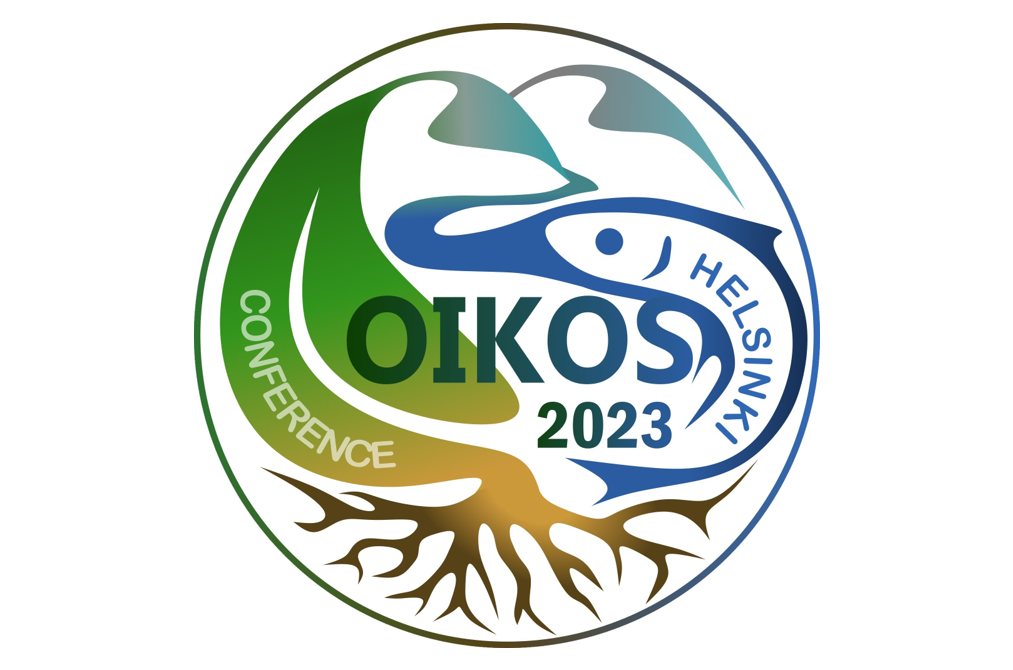
After attending plenty of conferences, I have for the first time gotten a chance to enter the other side and particiate in organizing the next Oikos Finland 2023 conference. There’s plenty happenging behind the scenes and the registration will open in December, but most importantly we have secured a great line-up of plenary speakers (Nerea Abrego - University of Jyväskylä, Bengt-Gunnar Jonsson - Mid Sweden University, Aino Juslén - SYKE & Craig Primmer - University of Helsinki) and two pre-conference workshops (Careers outside academia & Reproducible science). Particularly close to my heart have been all those decisions in the conference organization that address the sustainability and the actions that especially us ecologists need to take during the times of biodiversity and climate crises: serving only vegan or vegetarian food, encouraging people to arrive by train, and organizing a Scientist Rebellion session during one of the lunch breaks. I hope to see many fellow ecologist in Helsinki 13.-15.2.2023!
October 2022
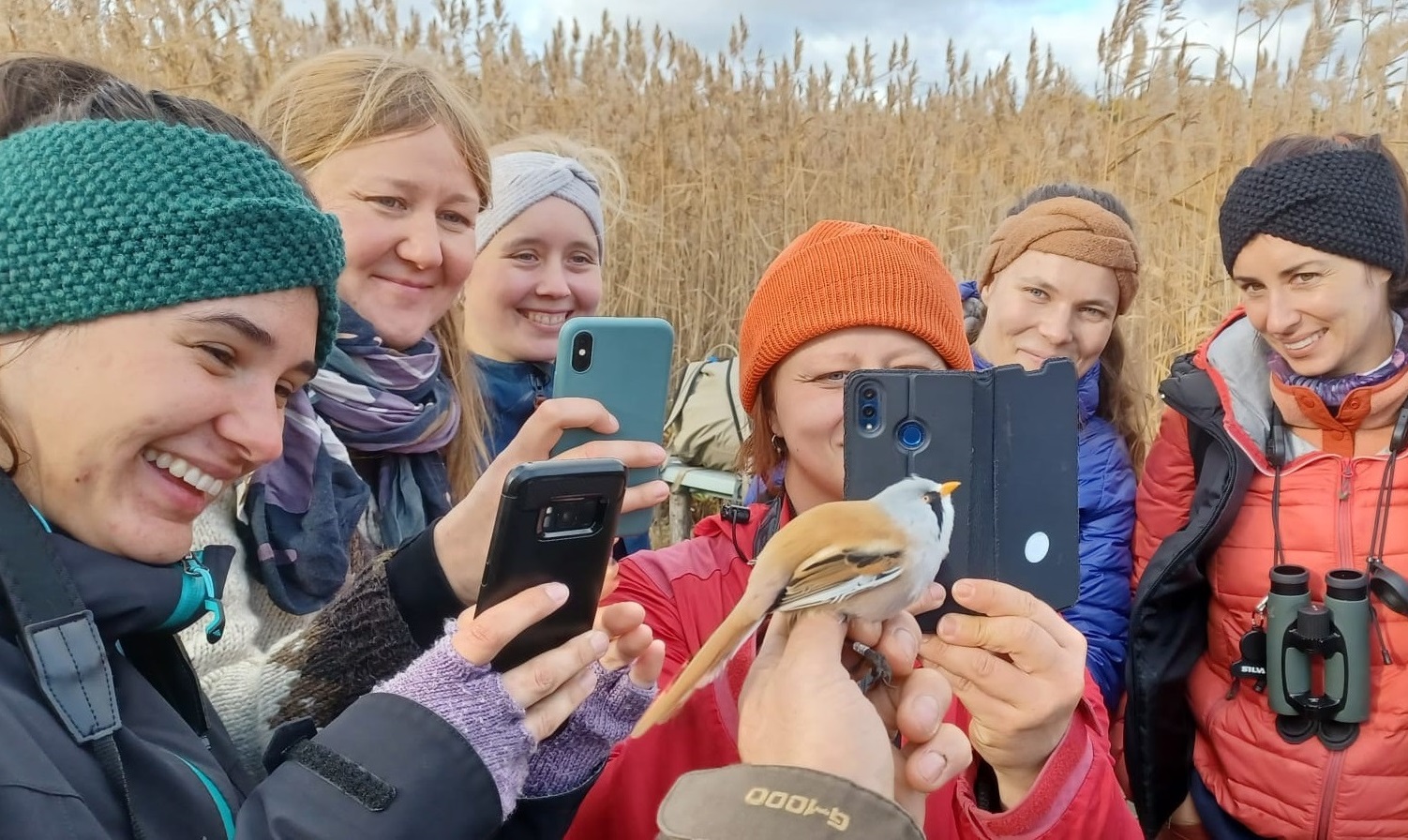
What does an ornithology lab do for a recreation day? Go bird ringing of course! In Laajalahti ringing station, in sunny weather, we captured a bunch of reed buntings, blue tits and even one fierce bearded reedling. It turned out that my superpower is differentiating the shades of blue in blue tit males and females.
September 2022

Bunch of applications submitted!! Fingers crossed for funding for the next few years studying ecological network rewiring under global change. Now a long wait to hear the results, but also some time to focus on the current project for a change…
August 2022
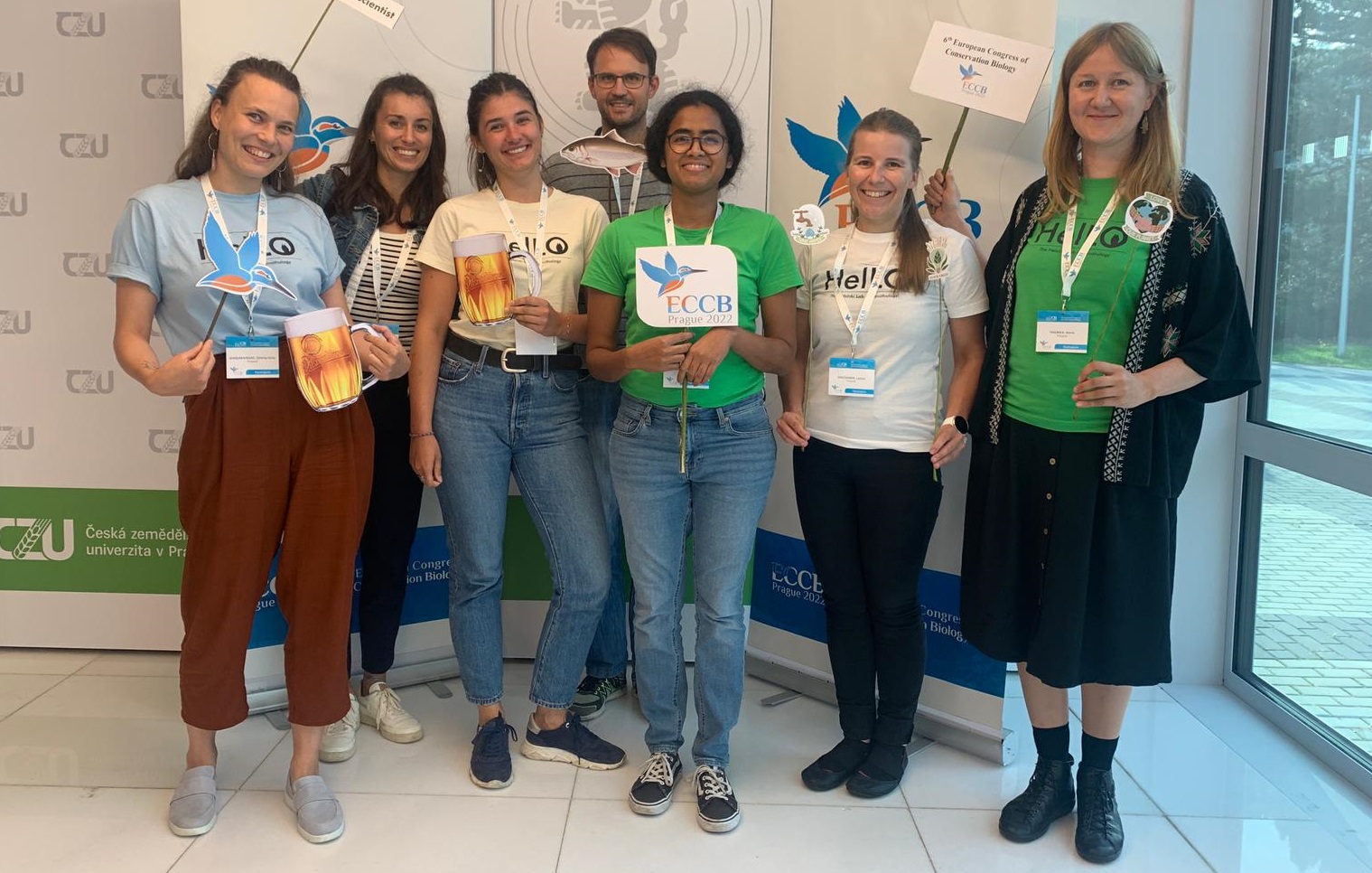
The second conference for this summer was ECCB2022 in Prague, where us Helsinki Lab of Ornithology members contributed with talks, a poster and a symposium, a pretty impressive selection I would say! I presented the latest part of my postdoc project on identification of keystone species in climate change context, stay tuned for the (hopefully-soon) published paper on the topic!
July 2022
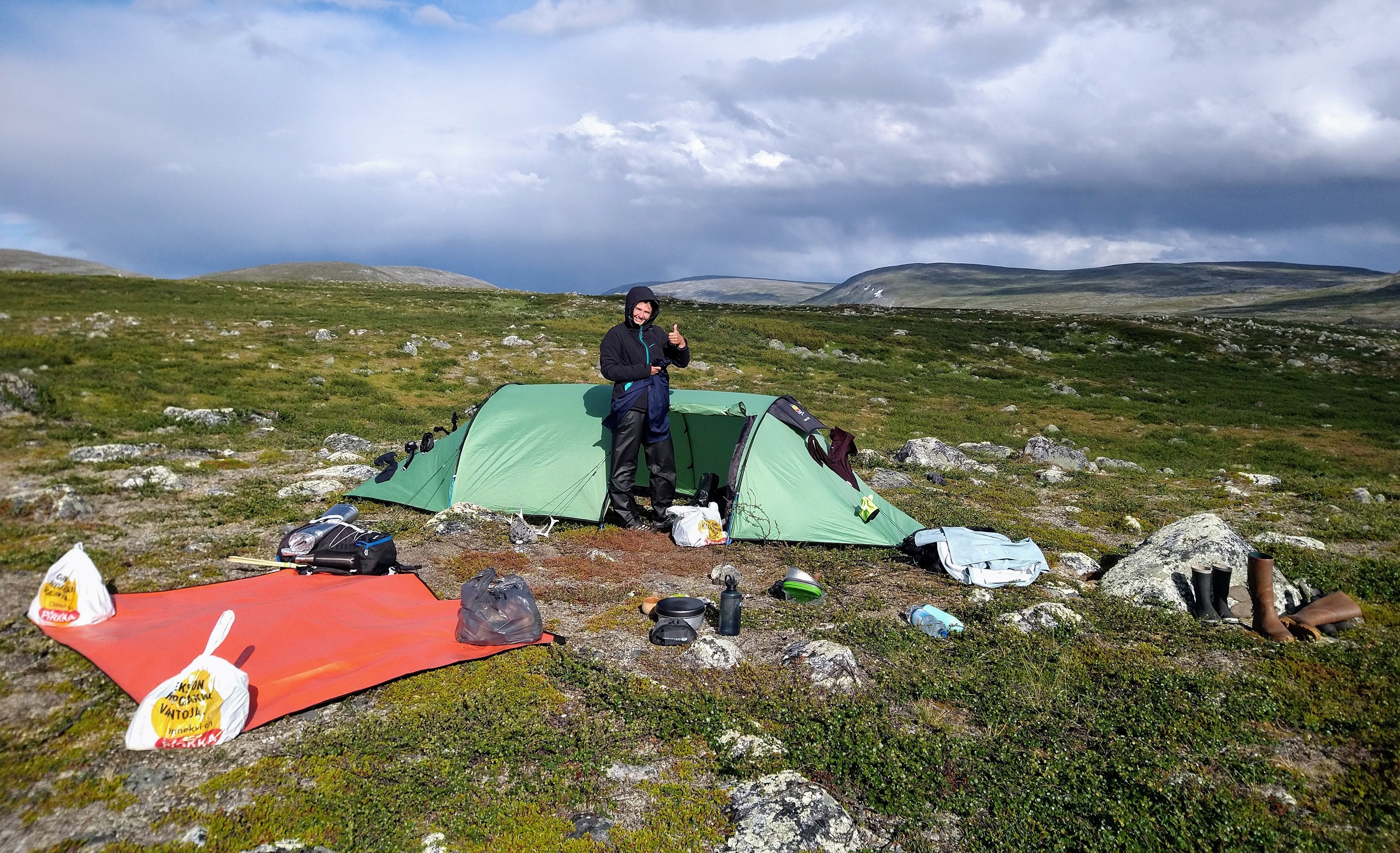
I got the rare opportunity to help out with Joséphine Couet’s fieldwork in Kilpisjärvi, Sápmi (Finland). The goal of this small pilot was to study the breeding success of Meadow Pipits and Lapland Buntings across an altitudinal gradient, but the nests of these ground-nesting birds proved hard to find! Although we didn’t find enough nests for statistical analyses, we luckily gained plenty of behavioural and ecological knowledge on the coexistence of birds along mountain slopes and in varying microhabitats. And the camping site couldn’t have been more beautiful!
June 2022
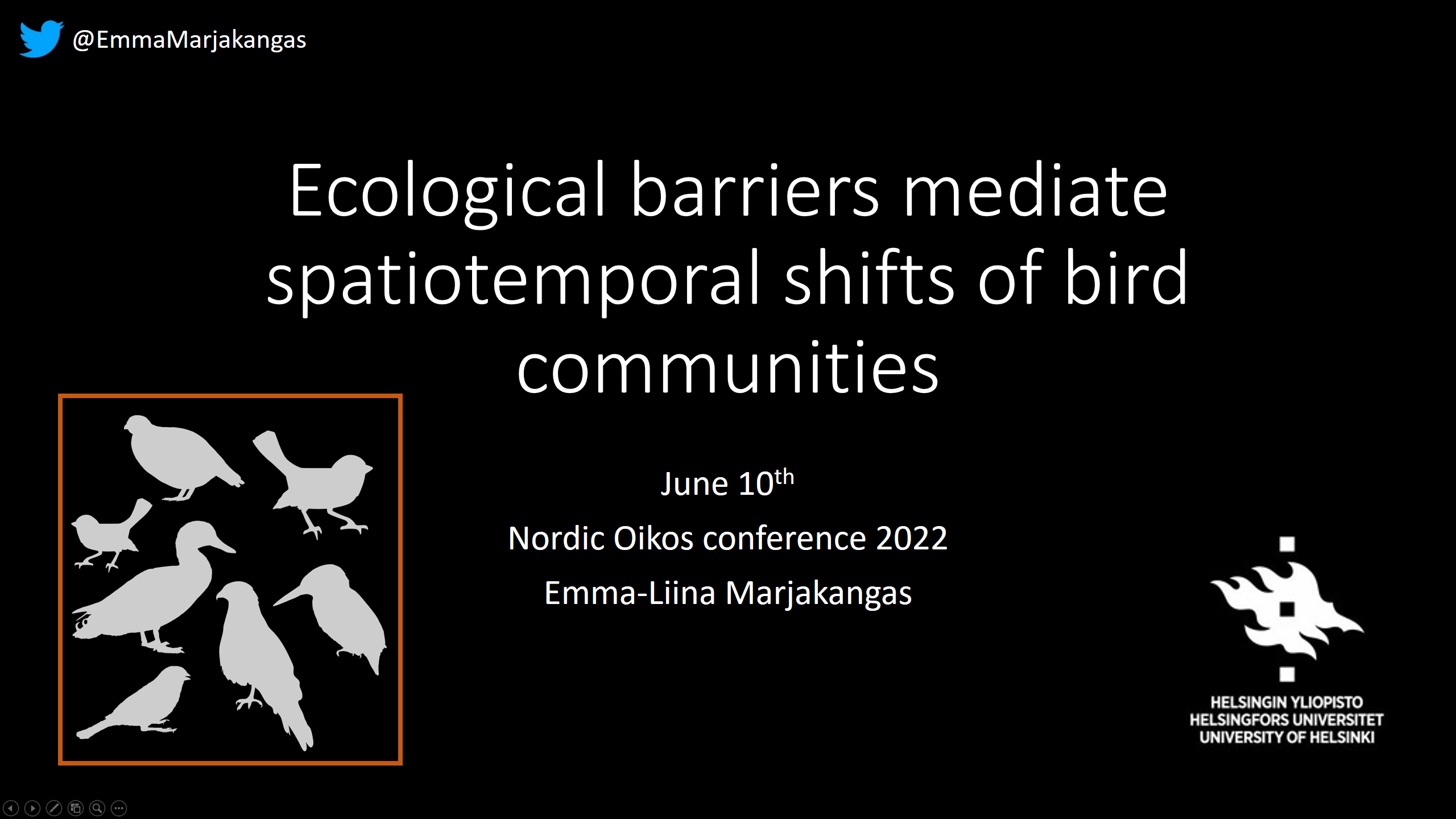
The in-person conferences are happening after a long pause by the pandemic. In Nordic Oikos Conference in Aarhus (Denmark), I gave a presentation on a work-in-progress paper about the effects of large-scale barriers on bird community shifts under climate change (find the preprint of the paper here). It was great to see so many familiar faces in the conference after two years, the Nordic community of ecologists is truly warm and welcoming!
May 2022
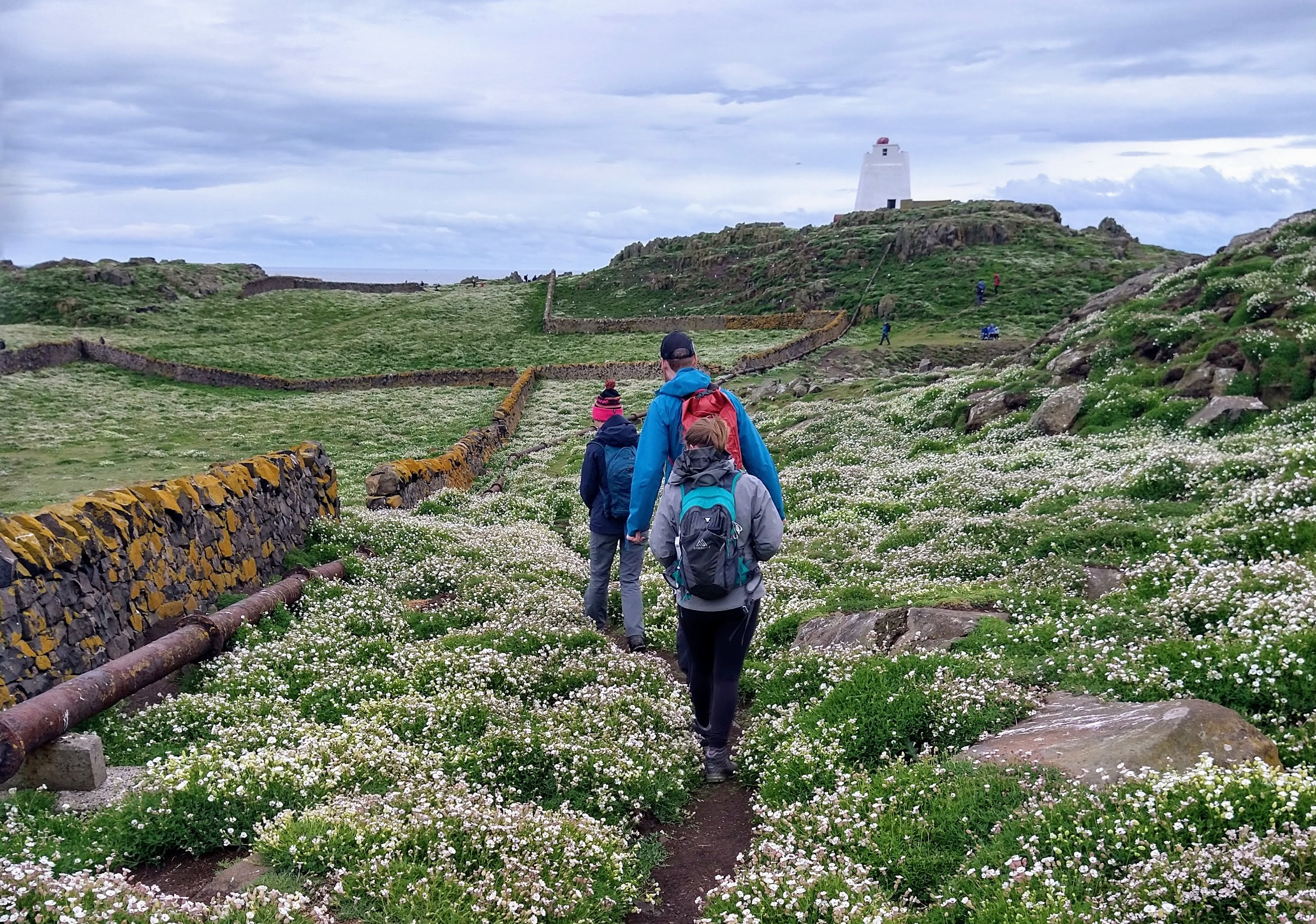
Better late than never: I finally managed to do the long-planned research stay at Centre for Research into Ecological & Environmental Modelling (CREEM) at University of St Andrews. During the three weeks, I kickstarted a project about global bird species’ tolerances to human influence using eBird data with Dr Alison Johnston. I also got to visit the Isle of May and its dense sea bird colonies. Talk about species’ interactions among the birds that coexist in such high numbers on the tiny island… And I got to see the puffins for the first time!
February 2022
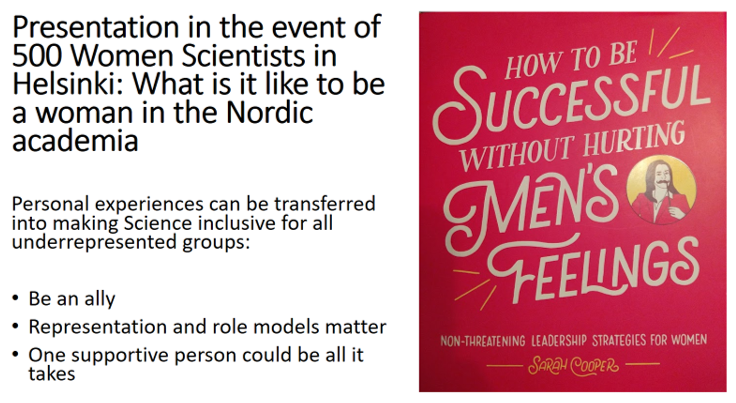
The international Day of Women and Girls in Science was declared by the United Nations in 2015 and is celebrated on February 11th every year. This year I celebrated the day by joining the 500 Women Scientists -organization’s event online: “What is it like to be a woman in Science”. In the event, ten women scientist (including myself) told about their experiences in science and how these experiences could be used to make science more inclusive for all underrepresented groups. Join the 500 Women Scientists -organization to find out about future events.
January 2022
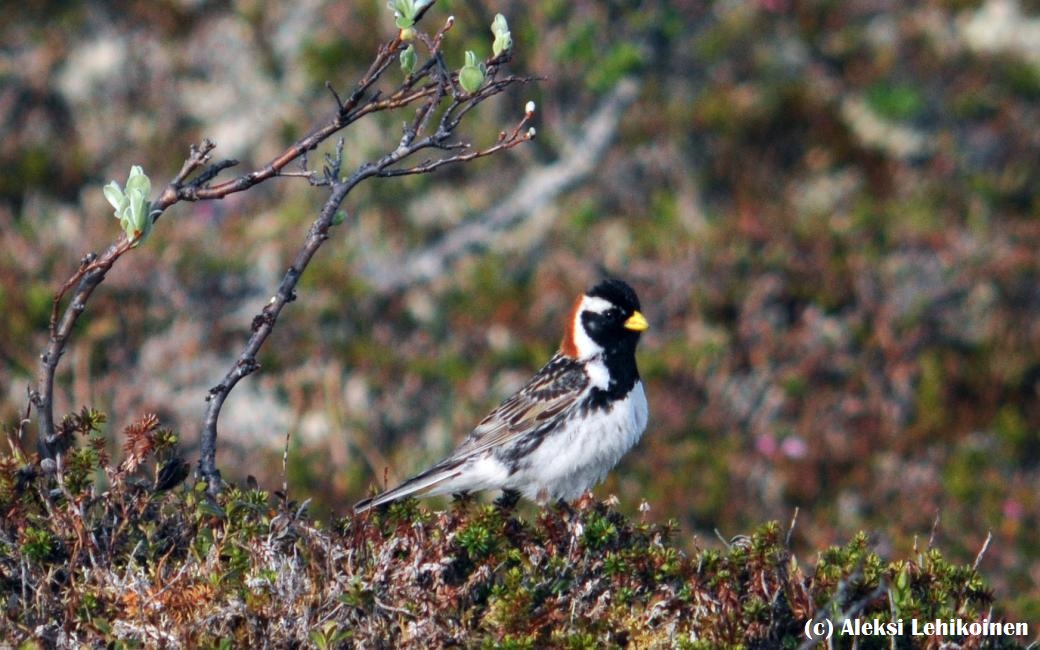
The first paper from Joséphine Couet’s PhD project has been published. In the study, we found that mountain bird abundances are shifting uphill in Scandinavia and the species with fast pace of life are moving especially fast. Read more about study in Finnish here.
Last updated: 19.12.2025